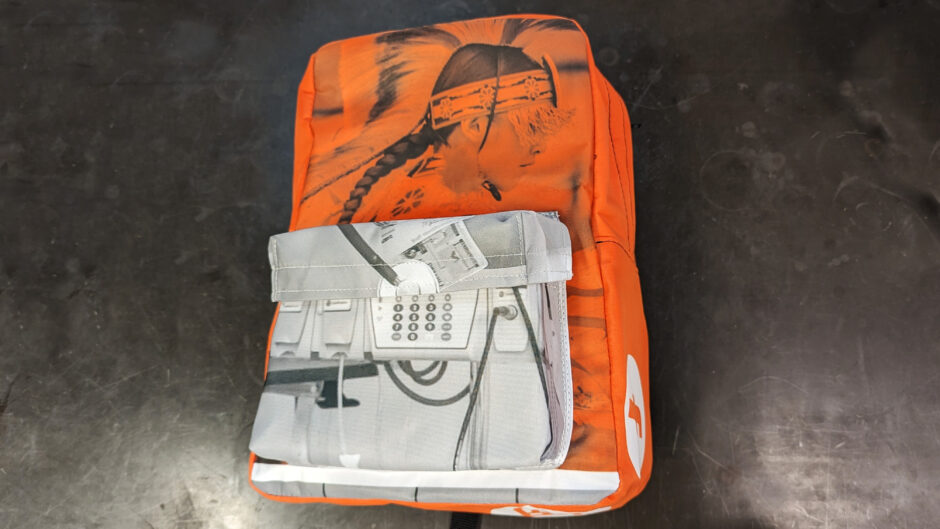
Make Your Own Back Pak From Up-Cycled Materials
We have now completed the back pack. For the first prototype we used a up cycled Langara banner for the outer fabric and upcycled highway billboard banner vinyl for the interior.
The patterns are available to anyone at Langara to make their very own up-cycled back pack.
We have all sorts of up cycled materials that can be used for the project.
We will be offering the first Demo workshop for the back pack on March 1st. If you are interested sign up here…. Workshop Sign Ups
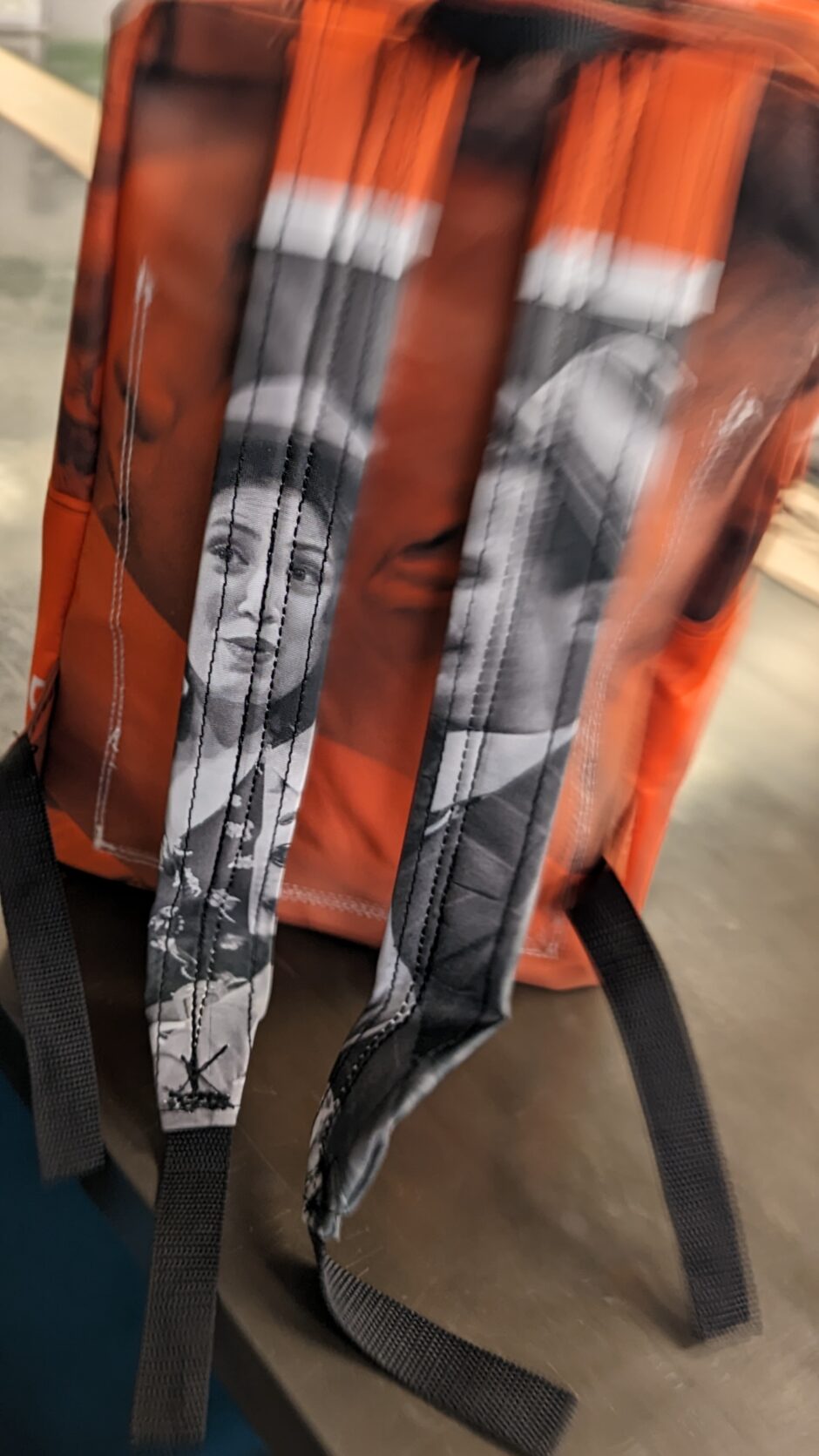
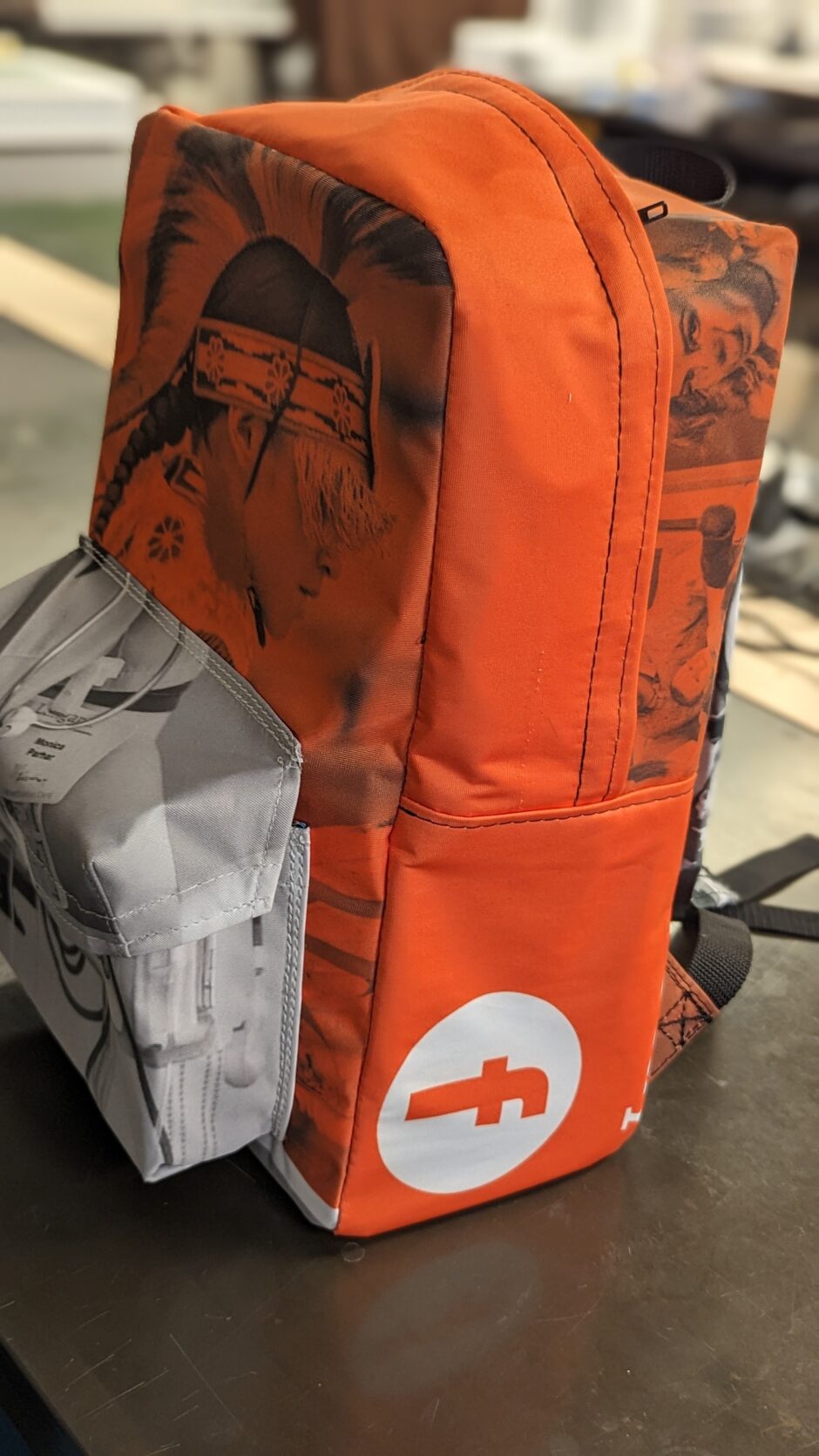
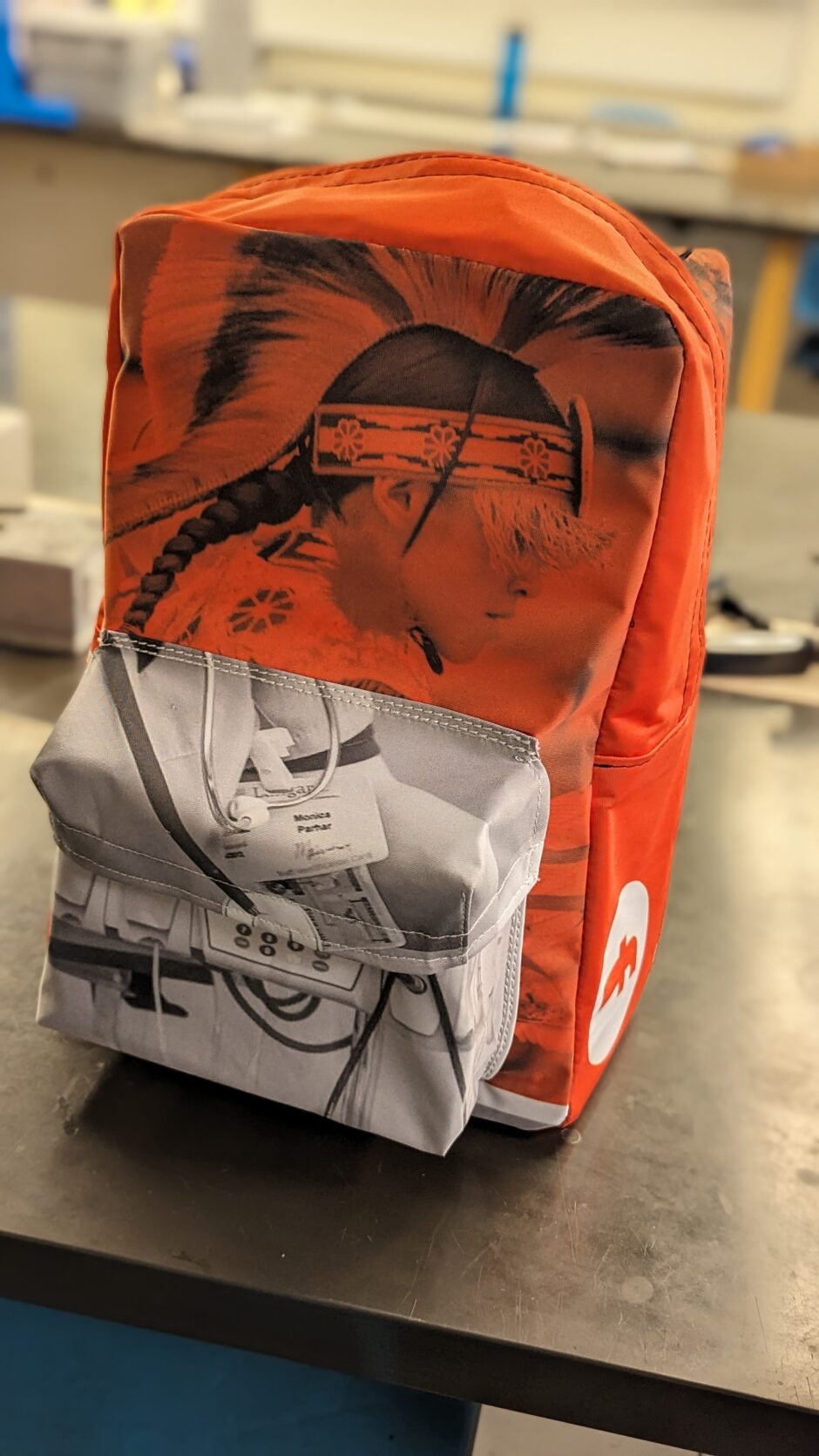
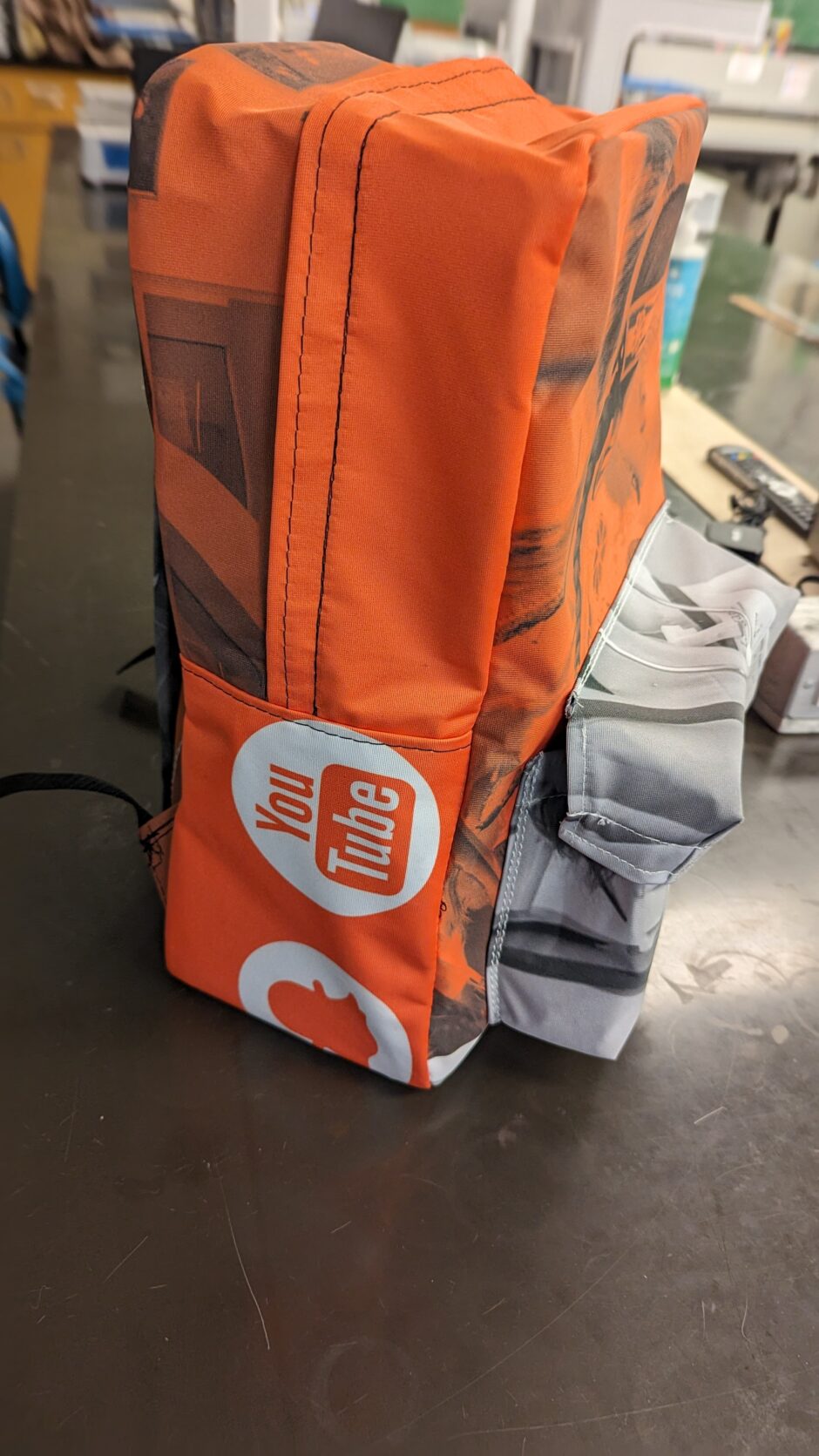
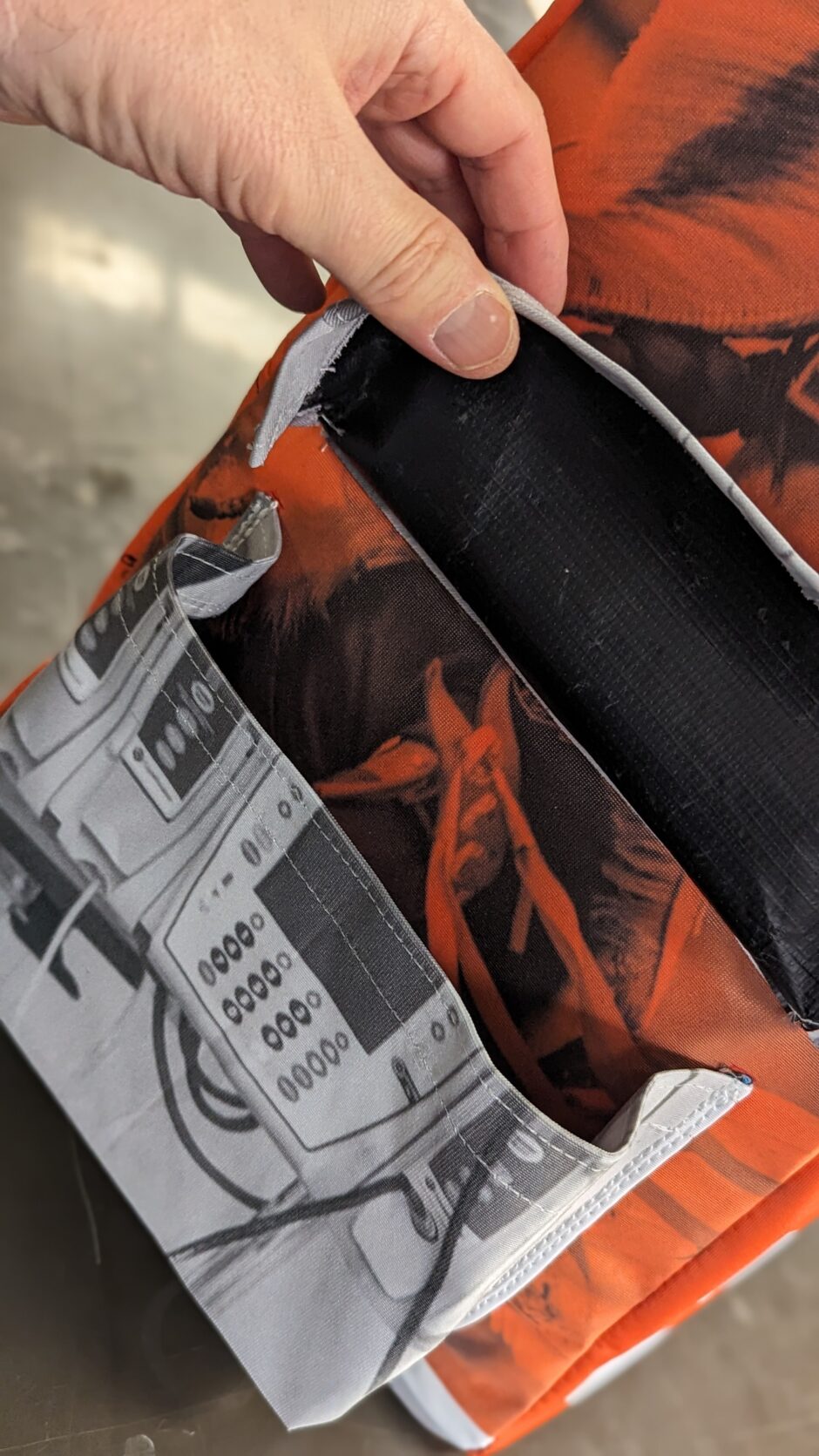
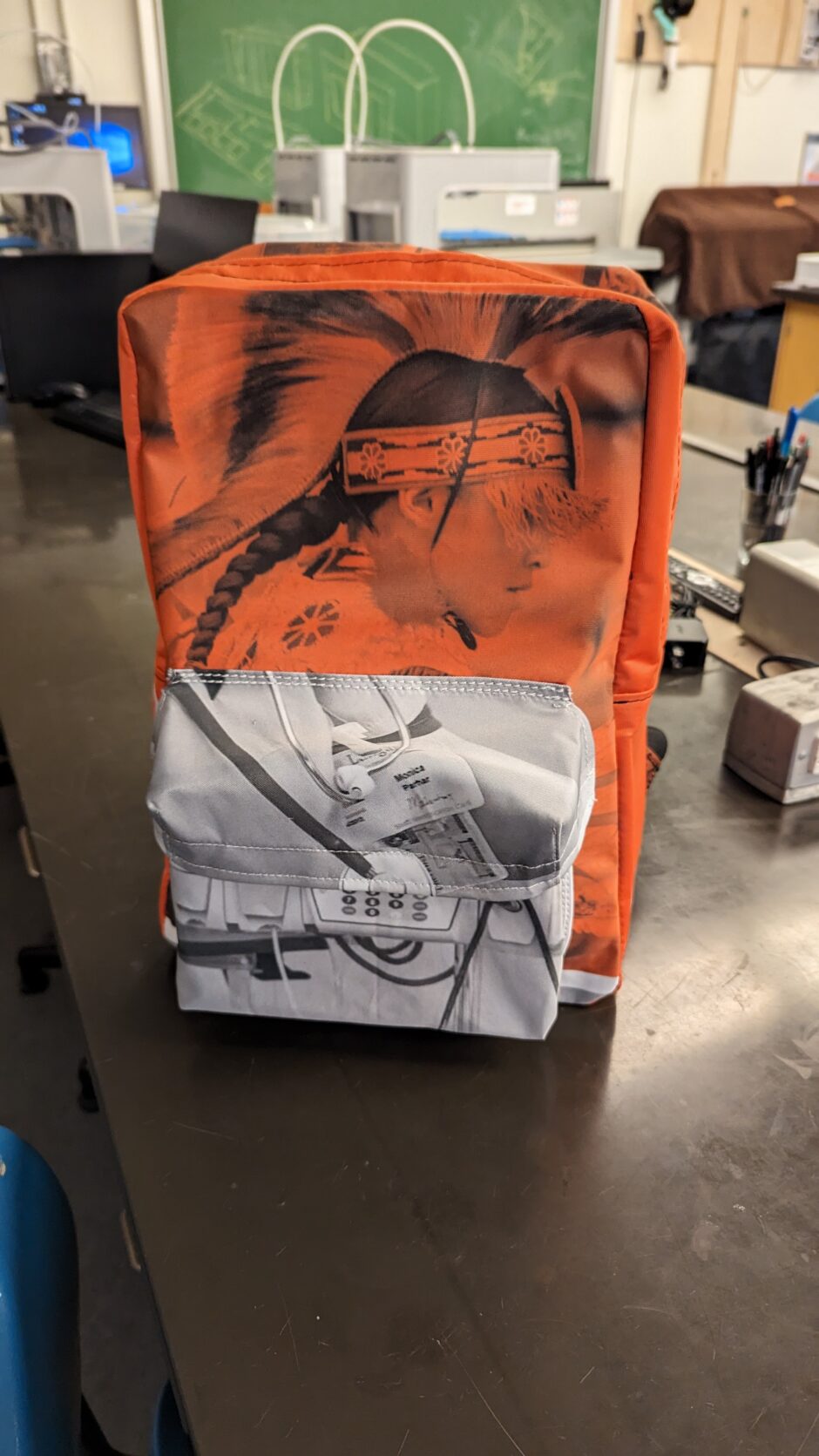
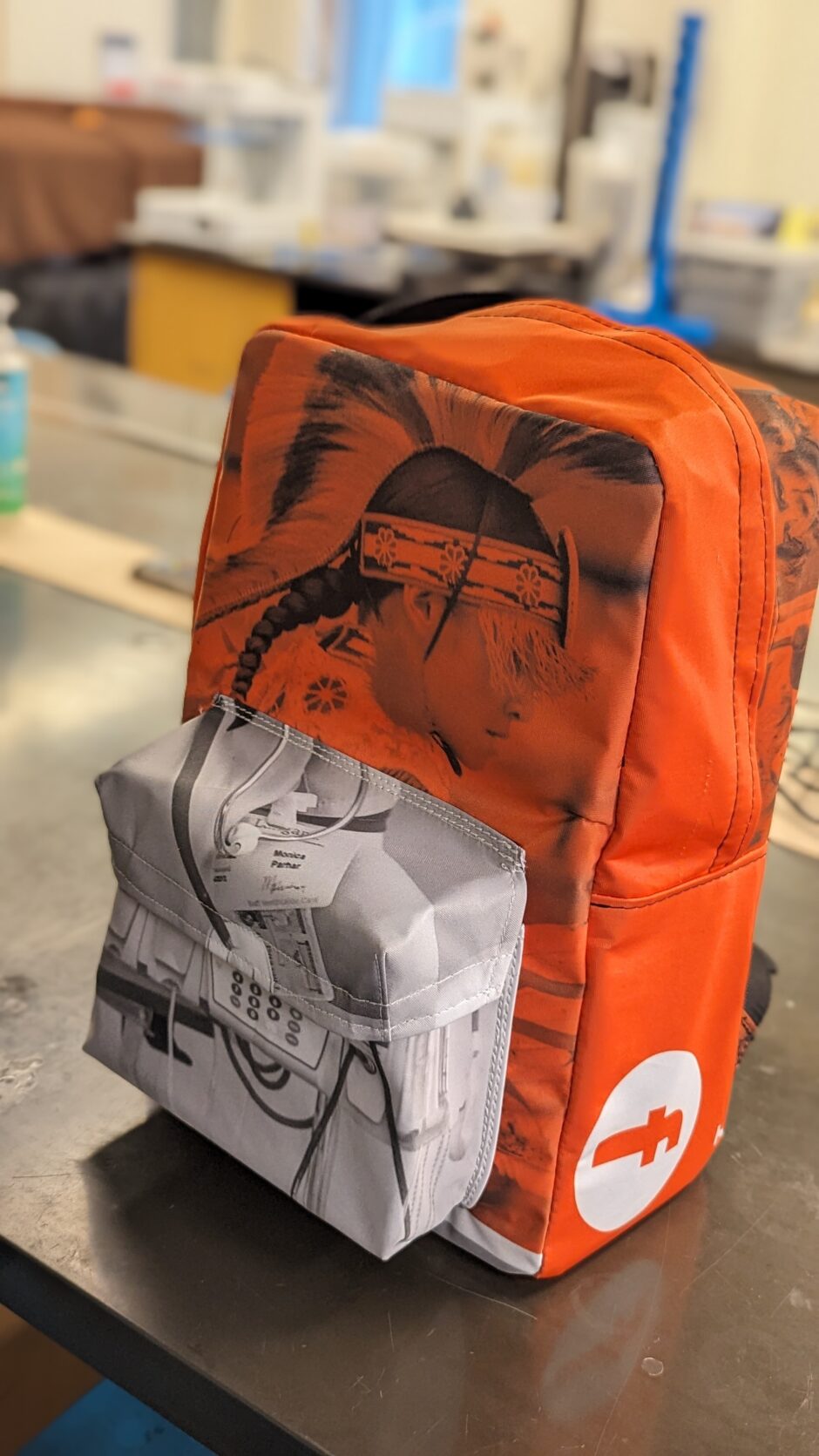
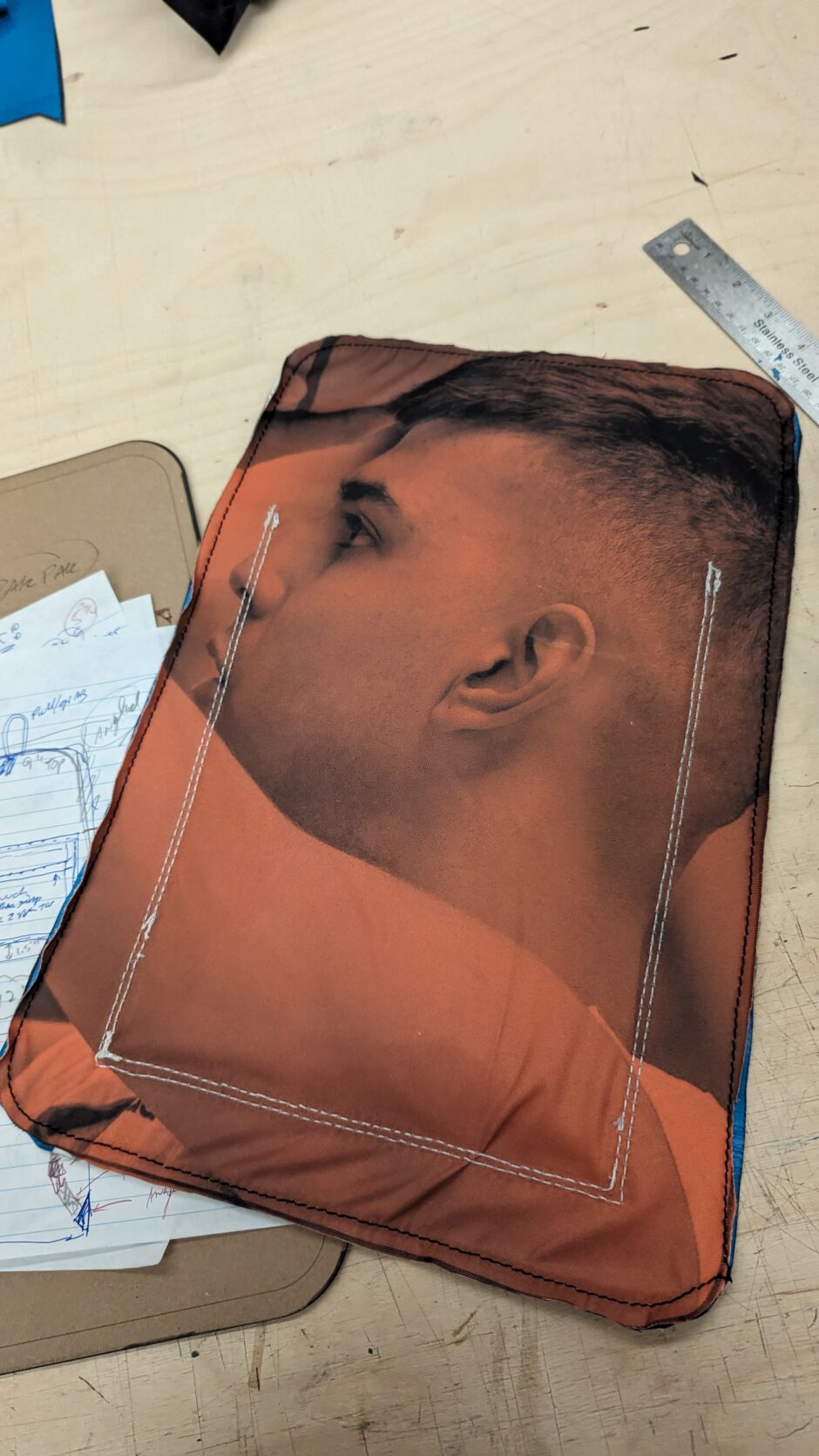
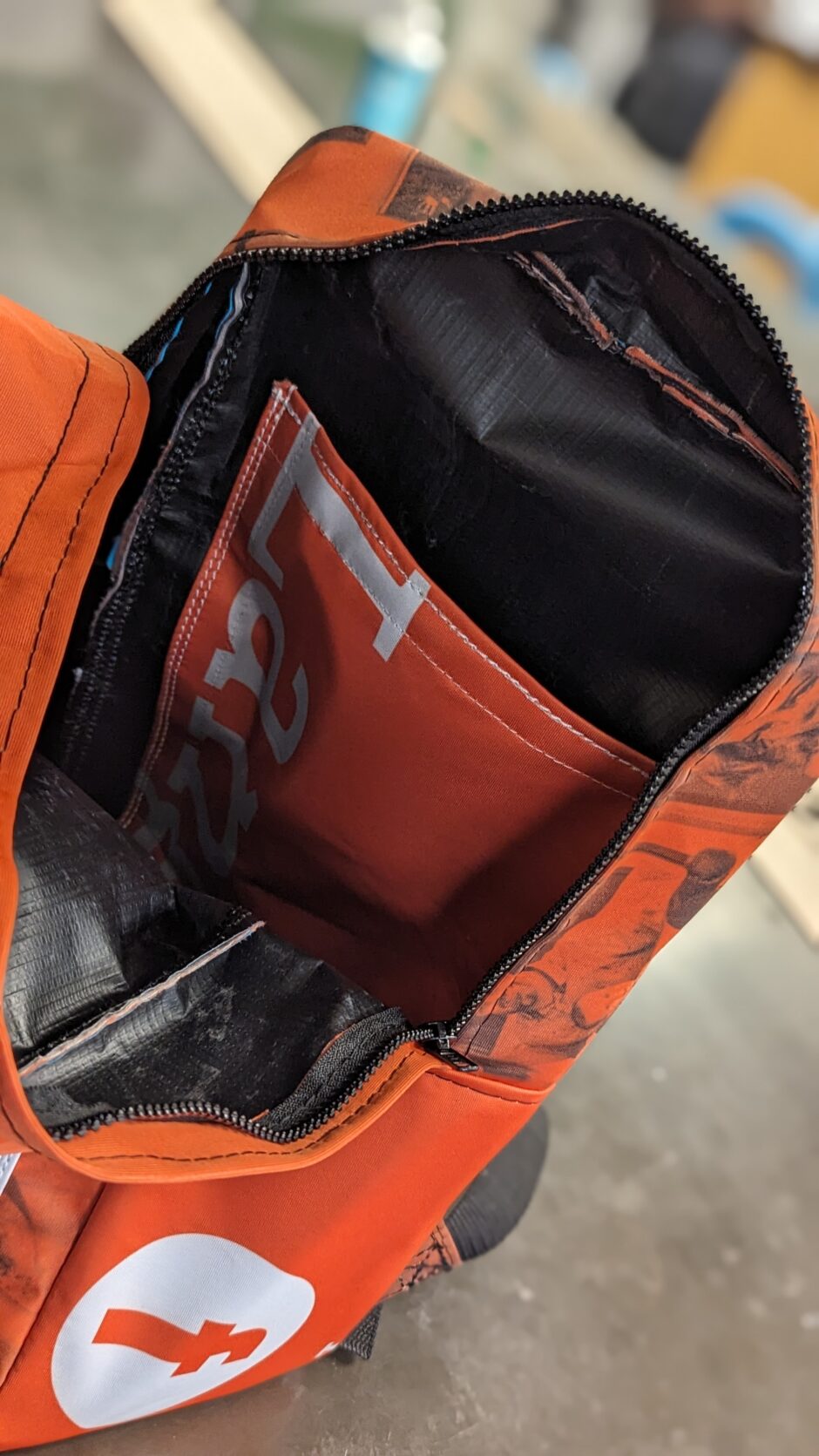


Tote Bag Made From Garbage
Recycling at Langara College Makerspace
At Langara College Makerspace, Don Gillard has transformed everyday waste into a functional masterpiece – the “Garbage” tote bag. By combining discarded plastic bags, heat fusion, and creative design, this project offers a fresh perspective on sustainability.
Starting with a collection of non-recyclable items like plastic grocery bags, bread bags, and sandwich bags, the maker used a heat press at 350°F/175°C to fuse them together. The result? Surprisingly strong and flexible plastic that’s both durable and repairable.
Unlike traditional upcycled products that wear out over time, this material stands the test of time. The “Garbage” tote bag, featuring a body made from repurposed plastic, trim from upcycled pants, and straps from old seatbelts, showcases a stylish and eco-friendly accessory.
If you’re curious about upcycling or want to expand your skills, Langara College Makerspace offers workshops, including industrial sewing machine sessions. Drop by and explore the world of sustainable creativity today.

















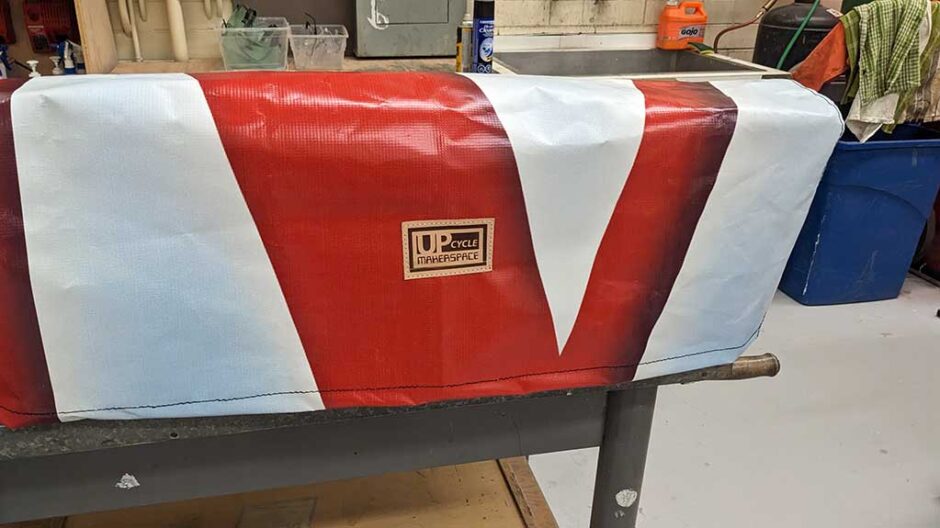
Upcycled Covers For Fine Arts
Rita Yip from the Fine Arts Department required some covers to protect equipment from dust and contaminants. Wanting to promote the use of our unlimited supply of roadside banner vinyl* we proceeded to measure and design each cover.
The espresso machine was first priority (lol), and then went on to make covers for; the vinyl cutter, a steel roller, and an open shelf.
*We have an unlimited supply of reinforced vinyl that comes from the Jimmy Pattison Company. The vinyl is used on the giant billboards you see on the side of highways. Sadly 90% of this vinyl is thrown away after the add is finished, 10% go to farmers to cover their fields.
If you want any of the vinyl just drop by makerspace. If you would like to make something out of it, we offer sewing and bag making workshops at the Makerspace.
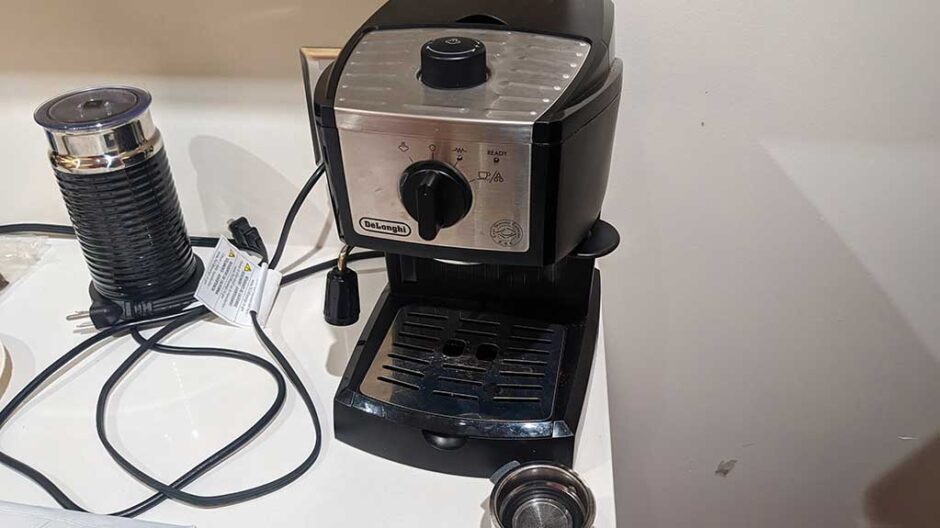
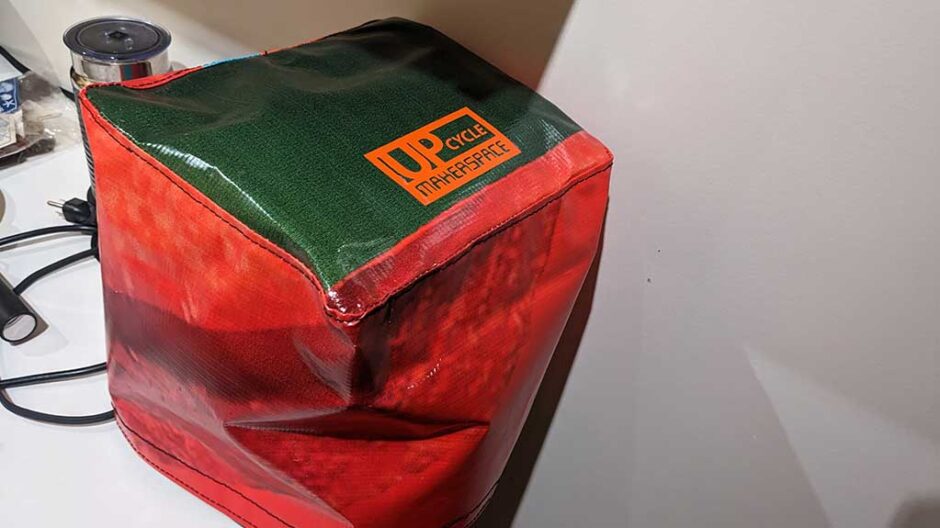
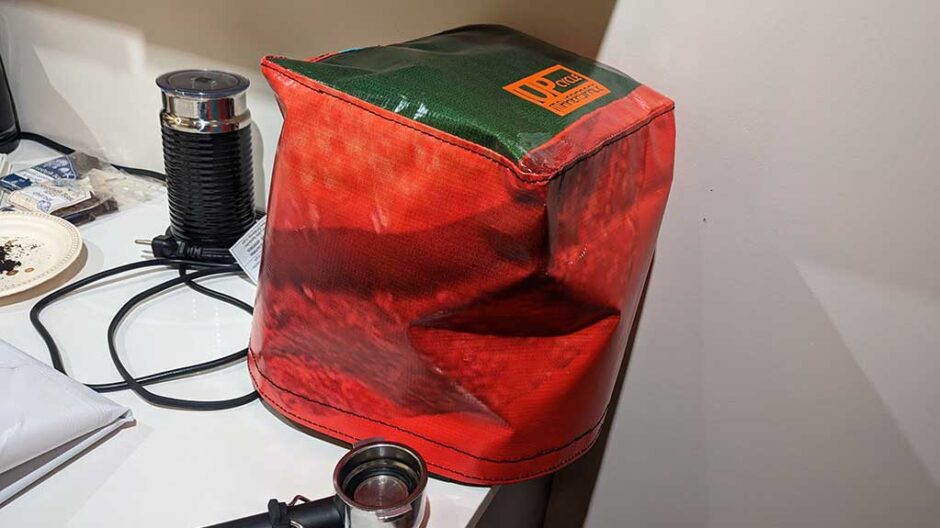
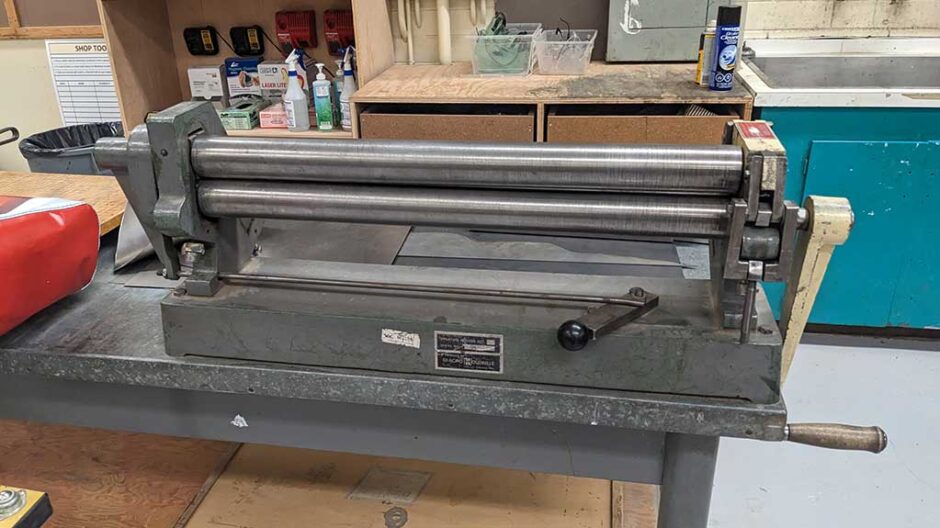
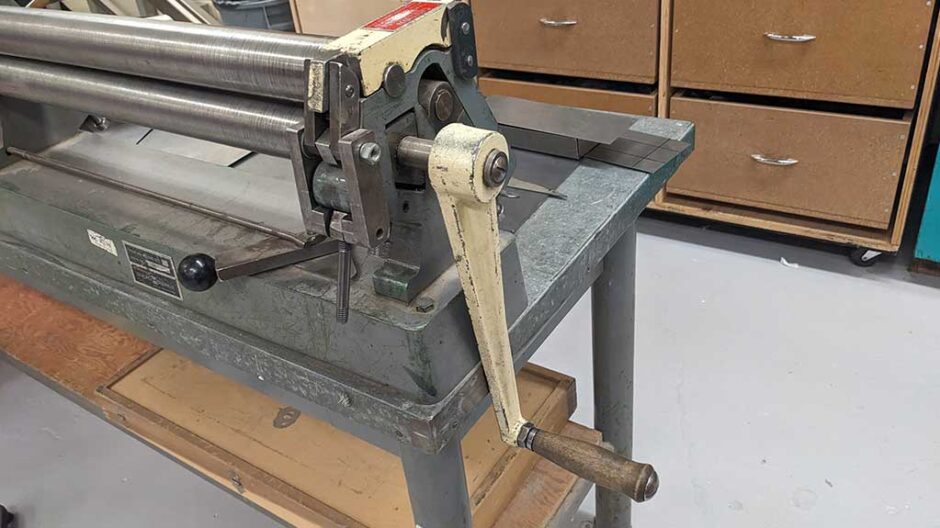
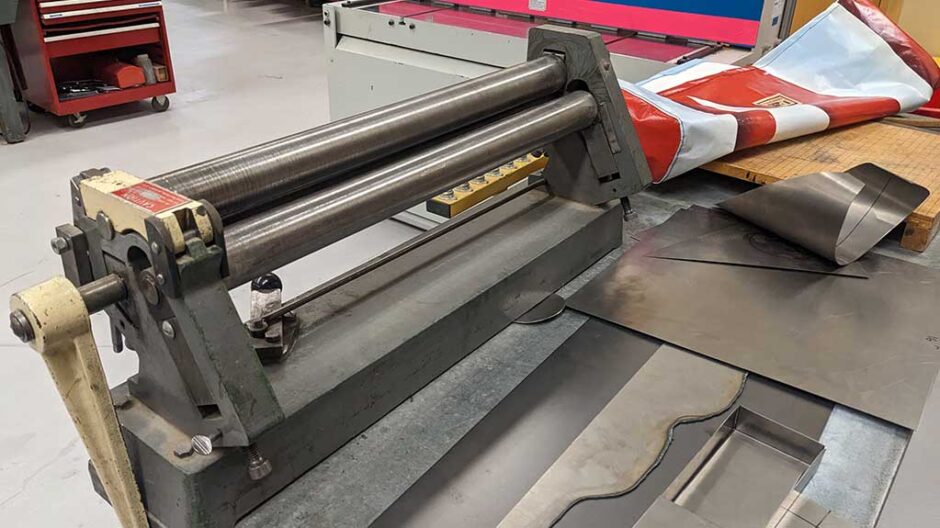
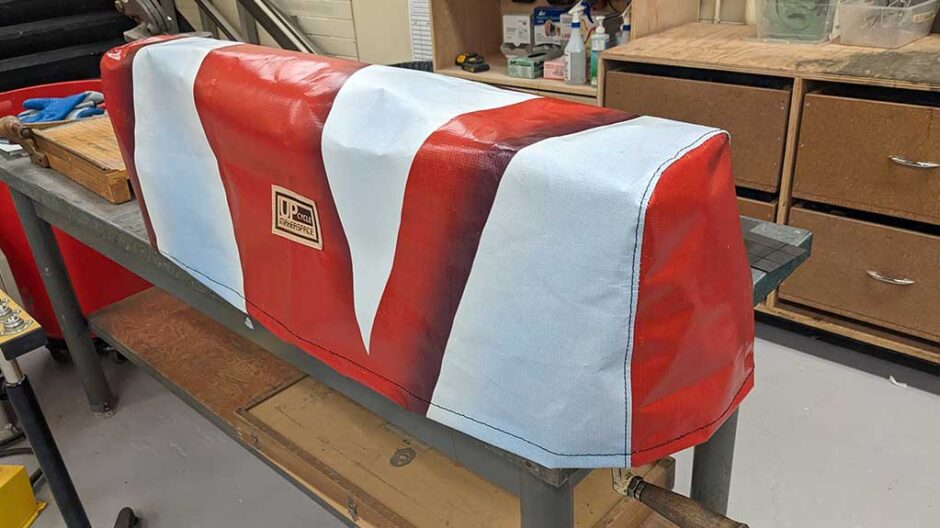
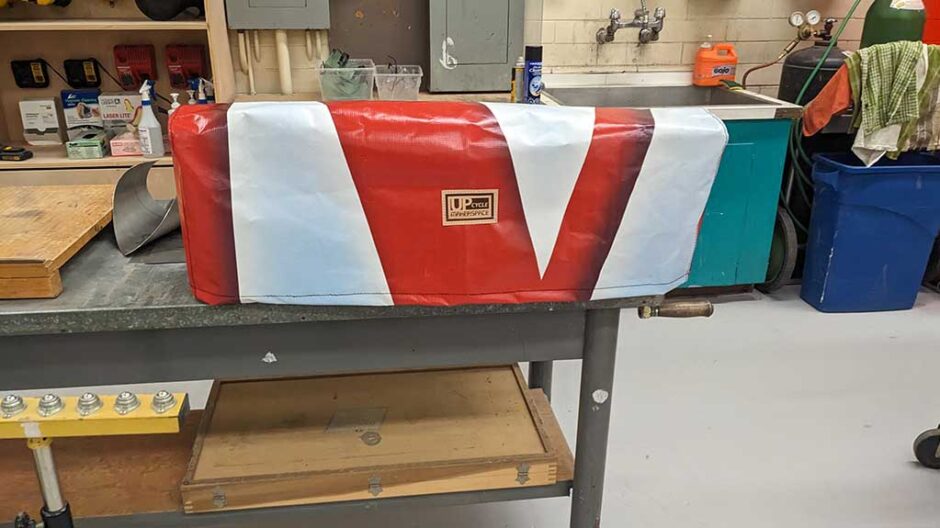

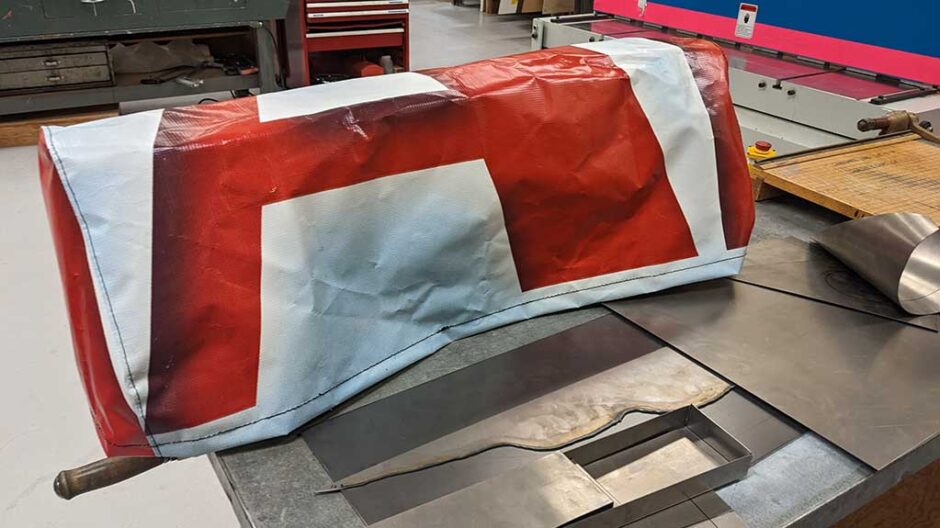
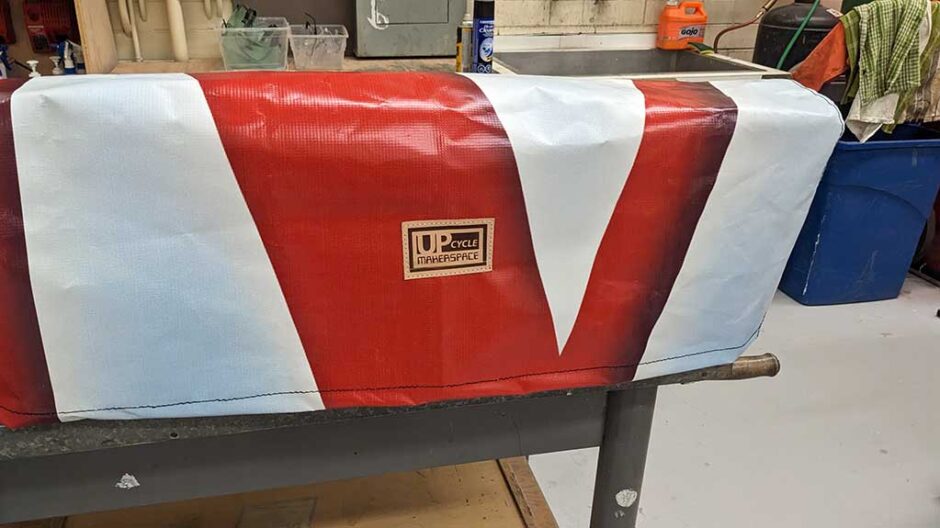
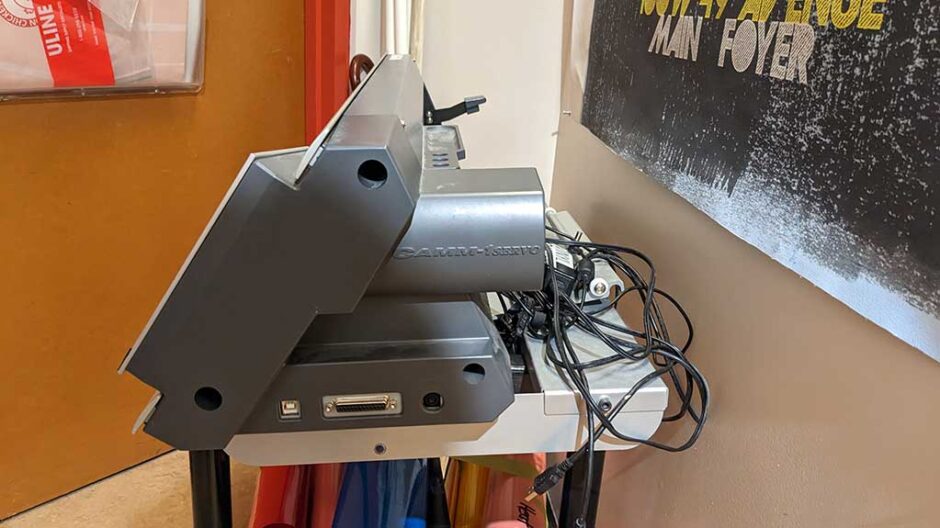
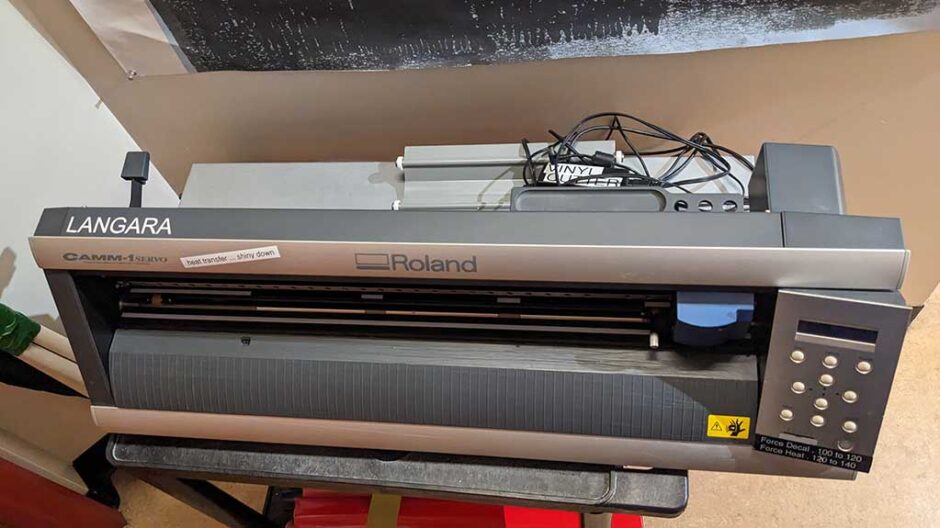
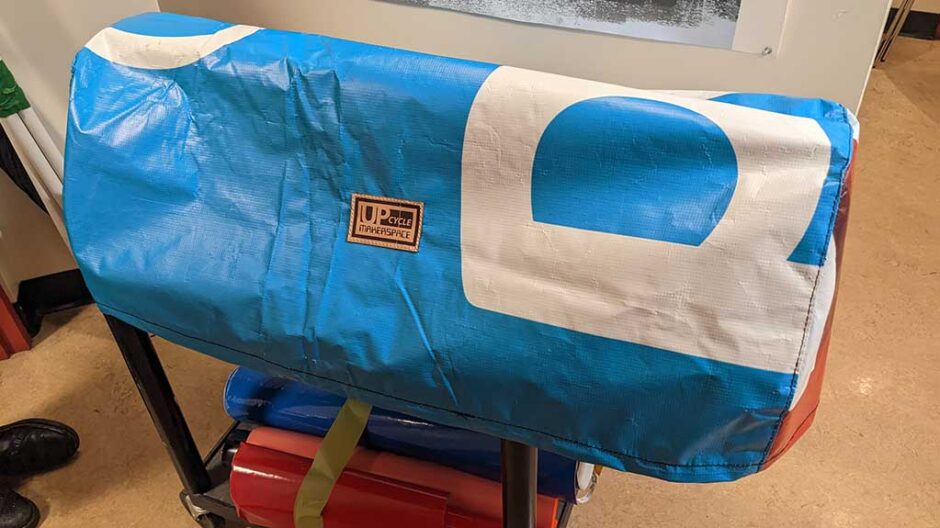
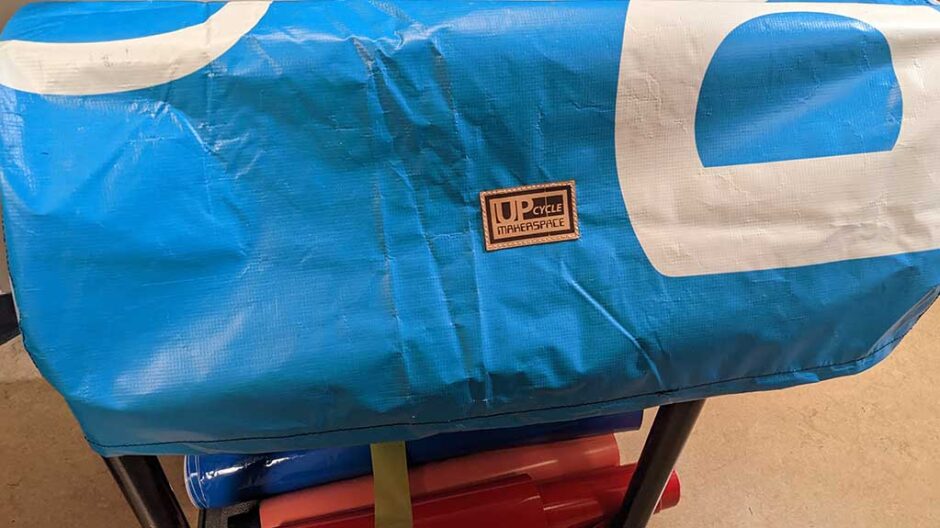
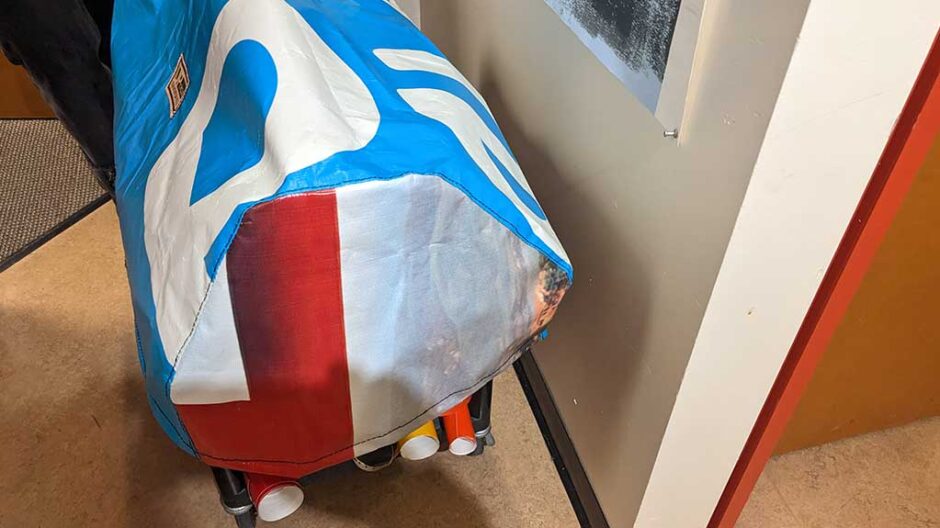
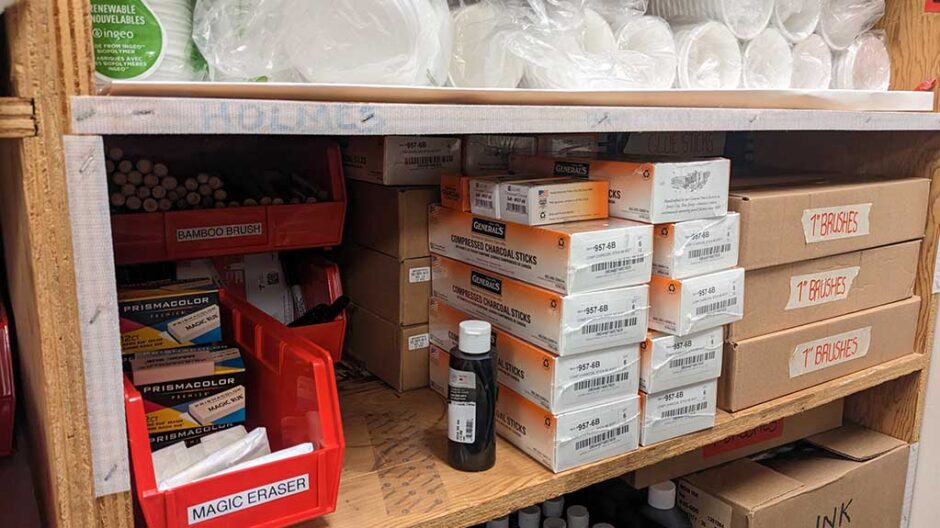
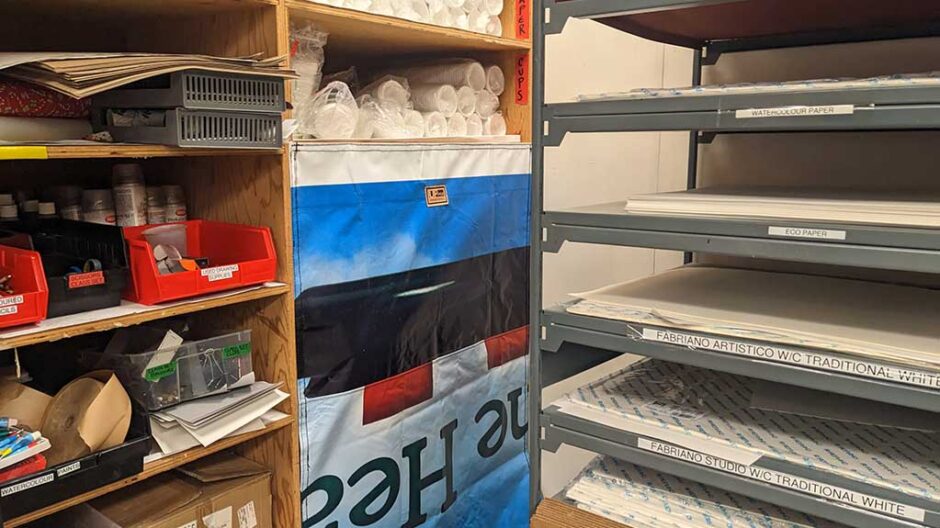
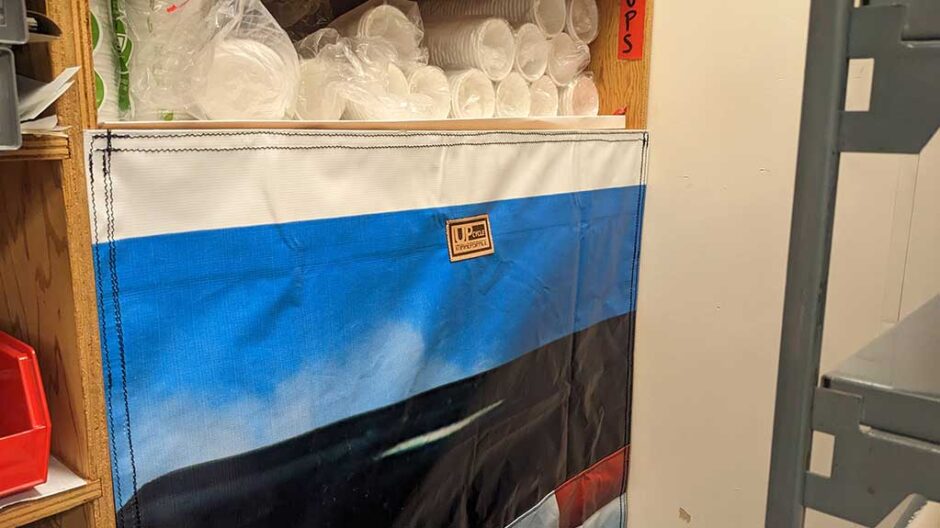
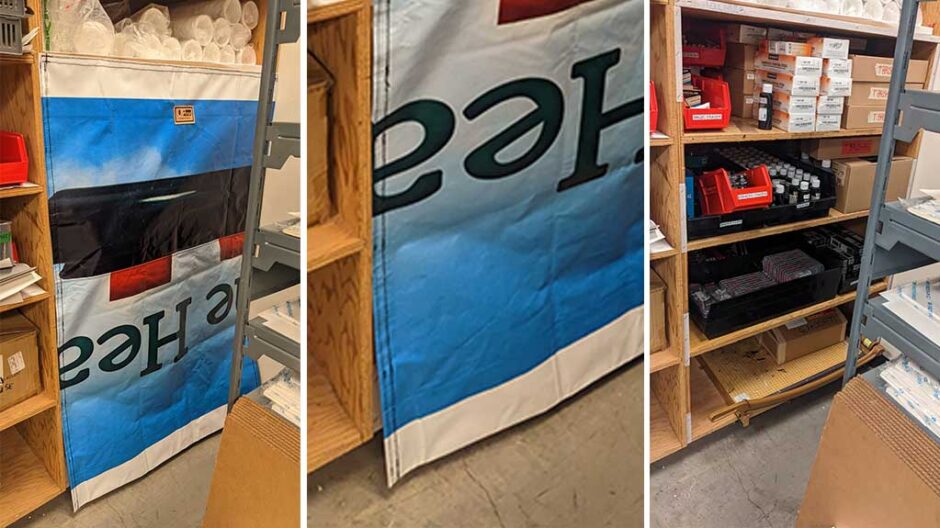
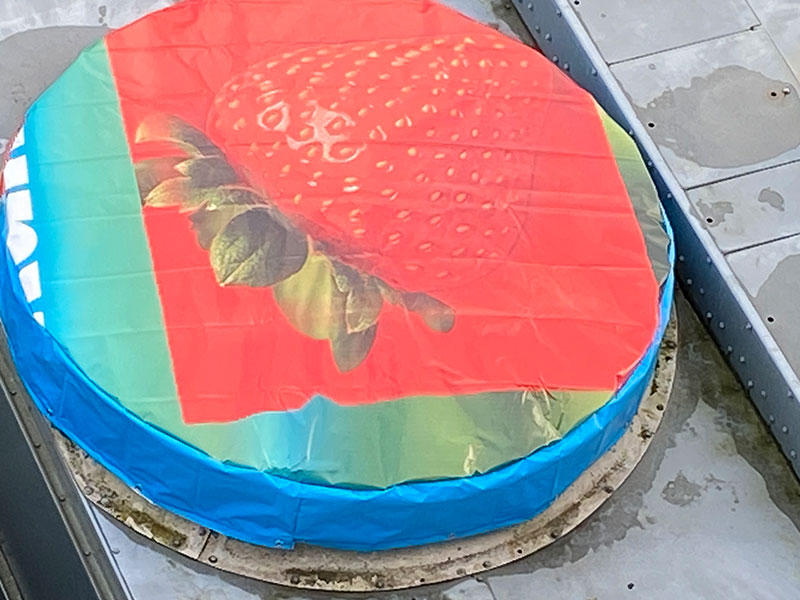
Giant fan Covers Made From Up-Cycled Billboard Vinyl
We just completed making two giant fan covers for Langara’s Engineering team. We used the billboard vinyl that I get from Jim Pattison signs. Ninety percent of the vinyl is usually thrown away, so this is another great Makerspace Up-Cycle project. The giant fans point to the sky, and they are for the boiler room in building A. During the year, and especially the winter months, a lot of rain gets into the fans. There is a drainage system, but the bearings in the fan still manage to get rusty. So the idea to get Makerspace to design & make a cover came from Mike Clark (facilities) and Navid (engineering).
The finished covers are 92″ in diameter and each have a 26 foot long band sewn to them. The band has grommets installed for a rope that will then tighten the cover onto the fan.
We have a huge supply of billboard vinyl here as well as grommets and grommet machines for your future projects. We also have four industrial Techsew sewing machines, to help make your project.
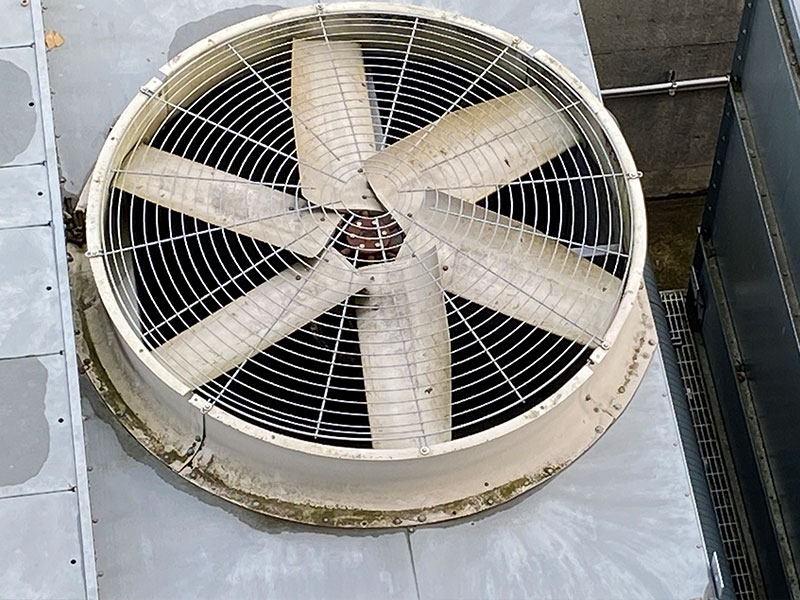
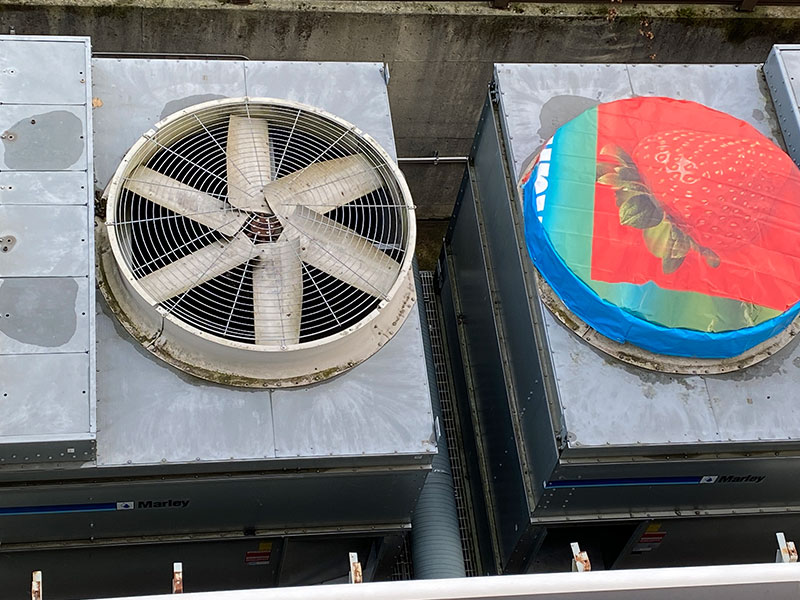
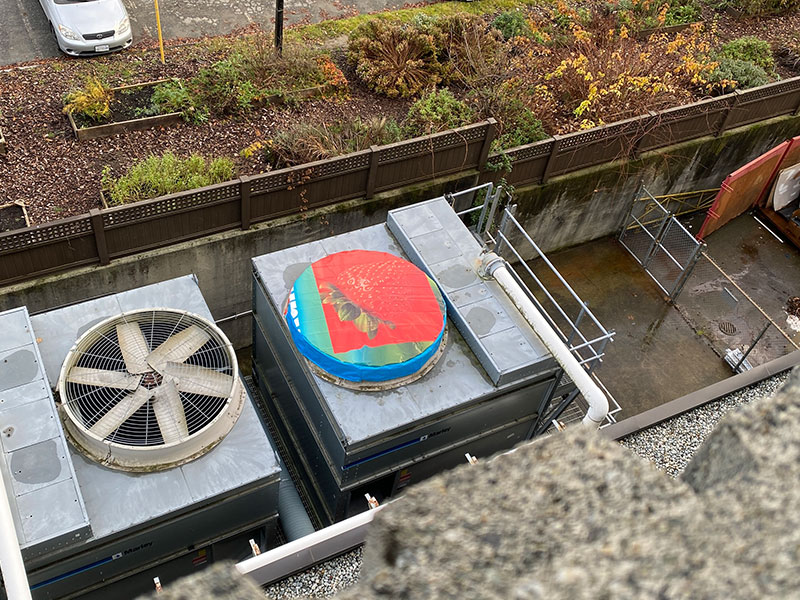
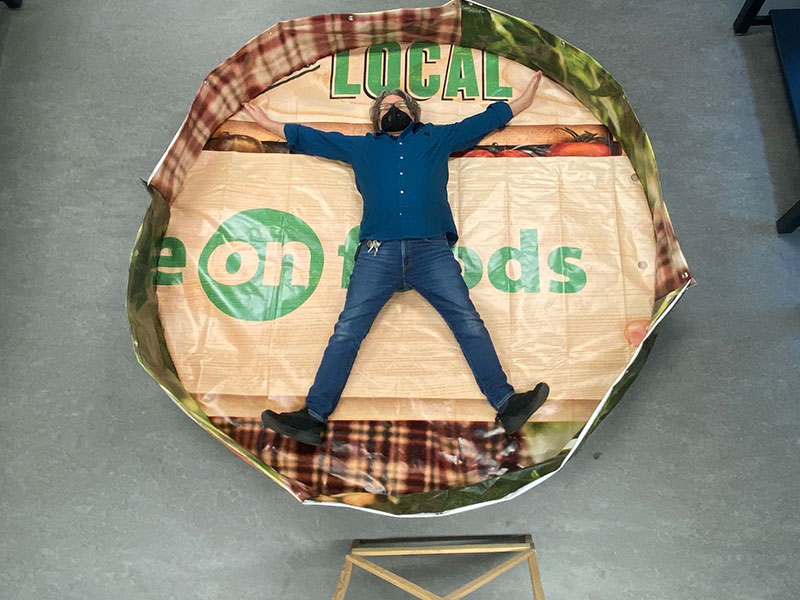
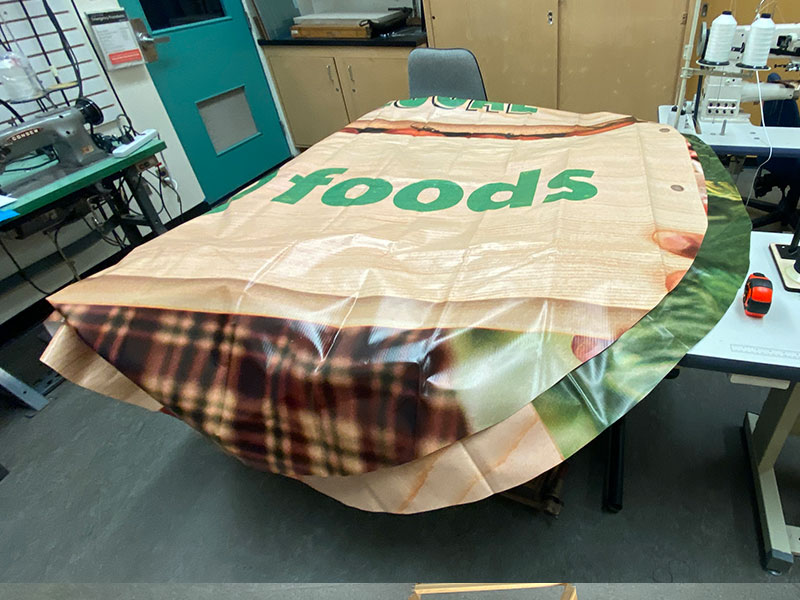
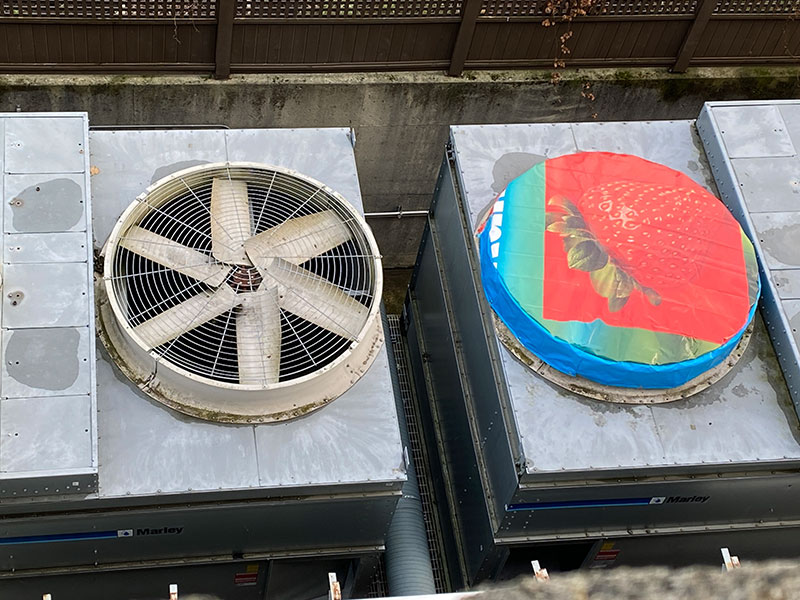
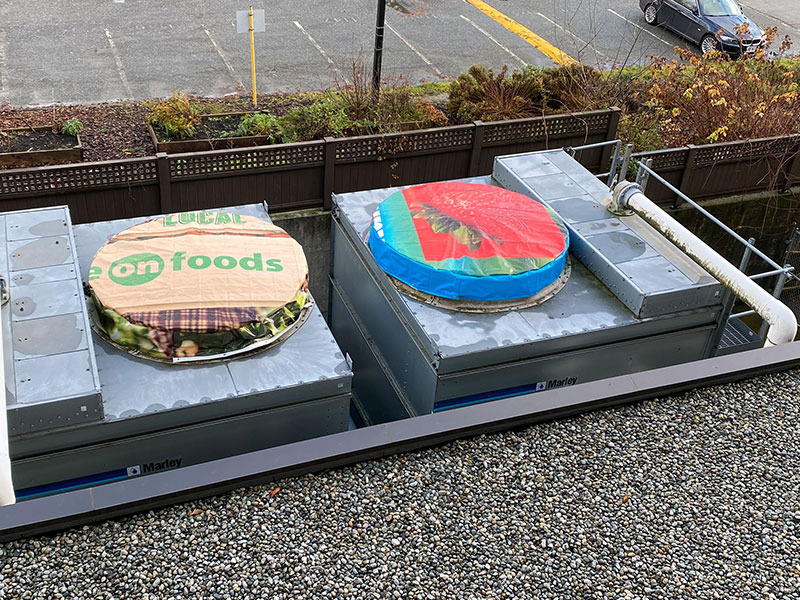
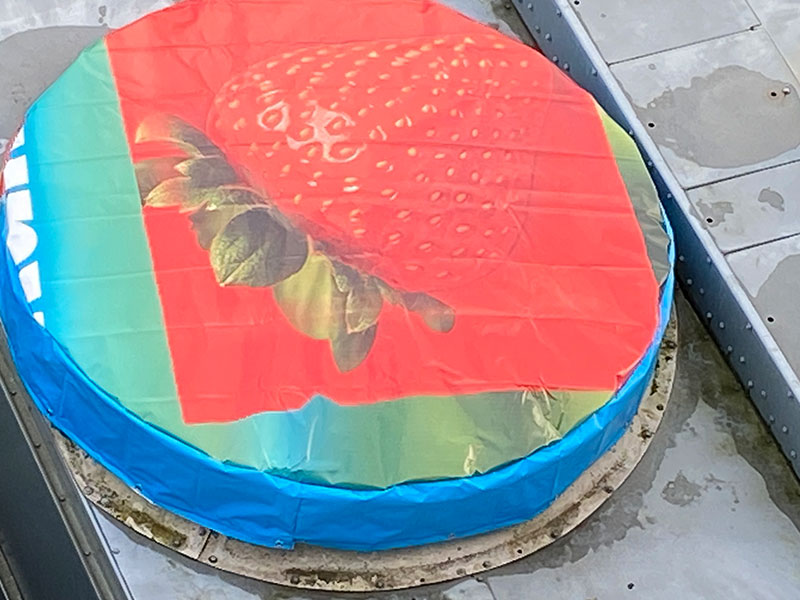
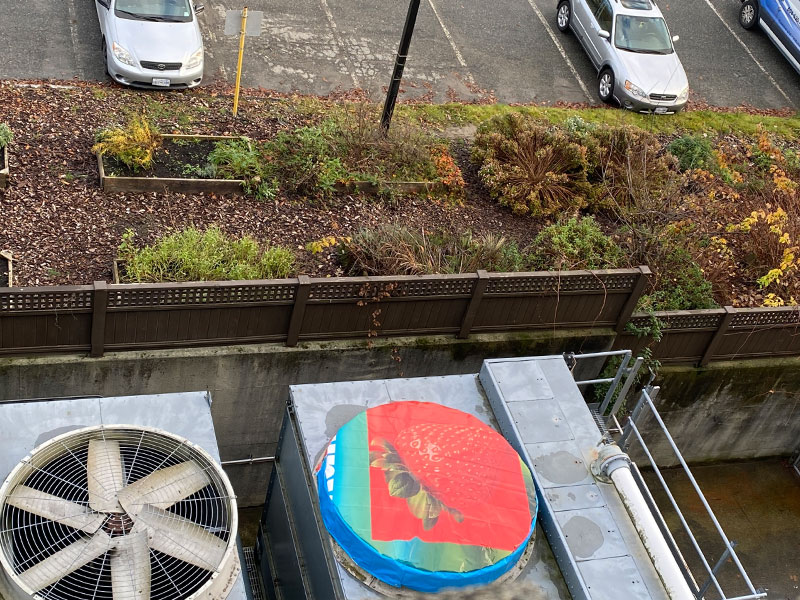
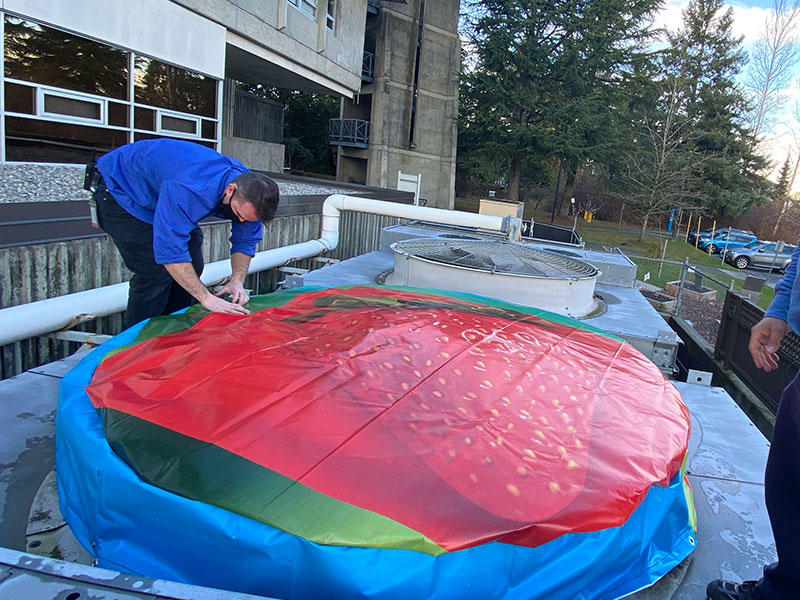
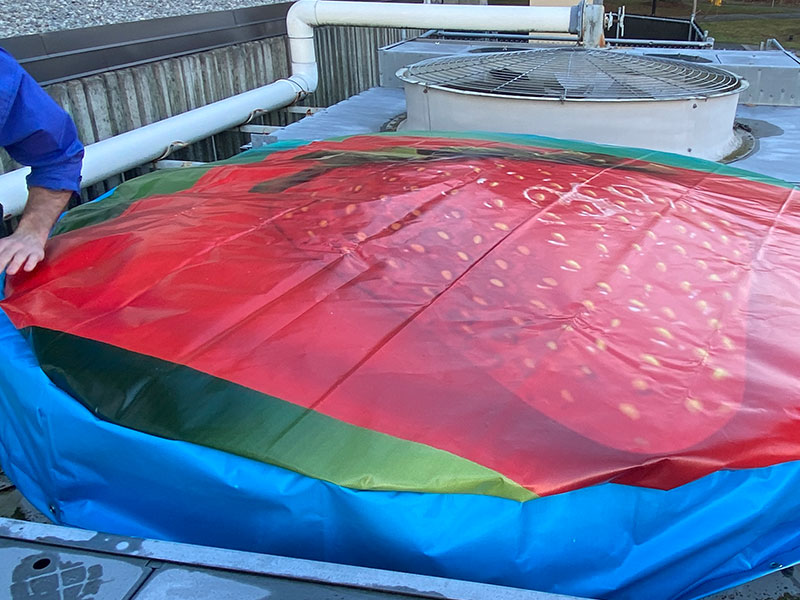
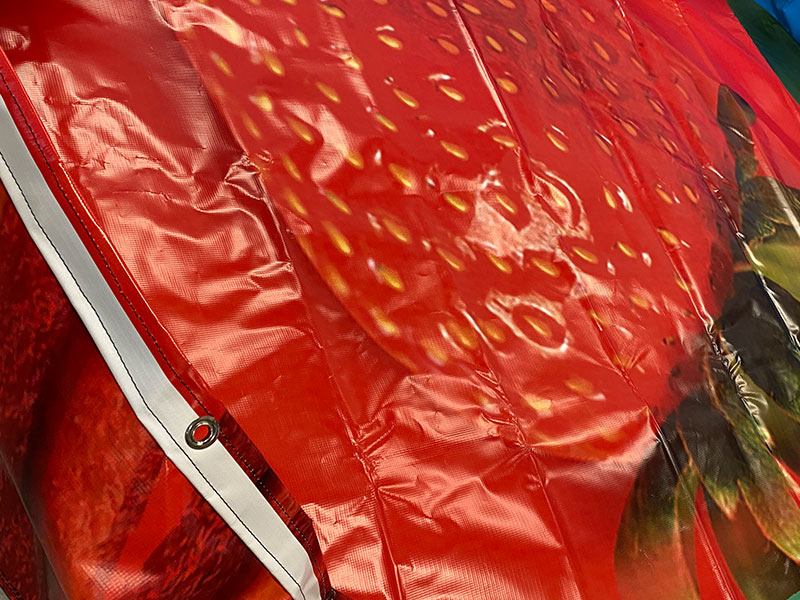
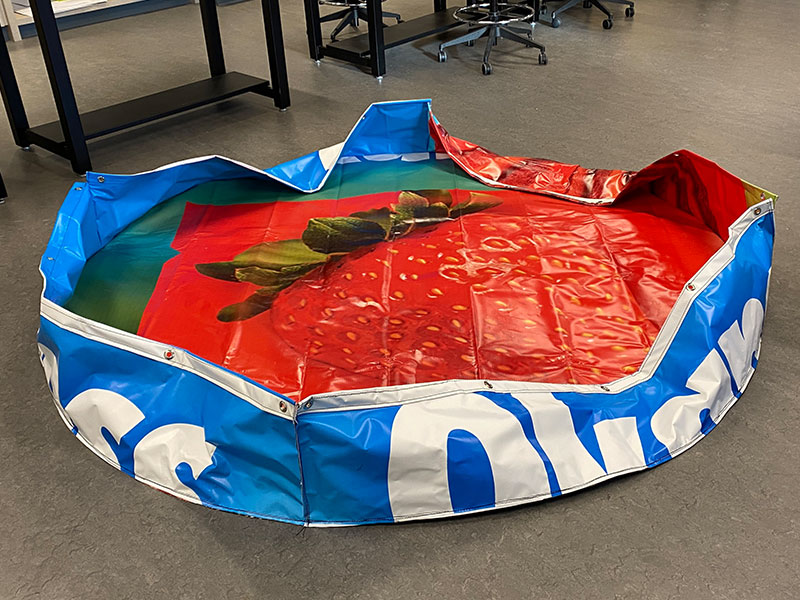
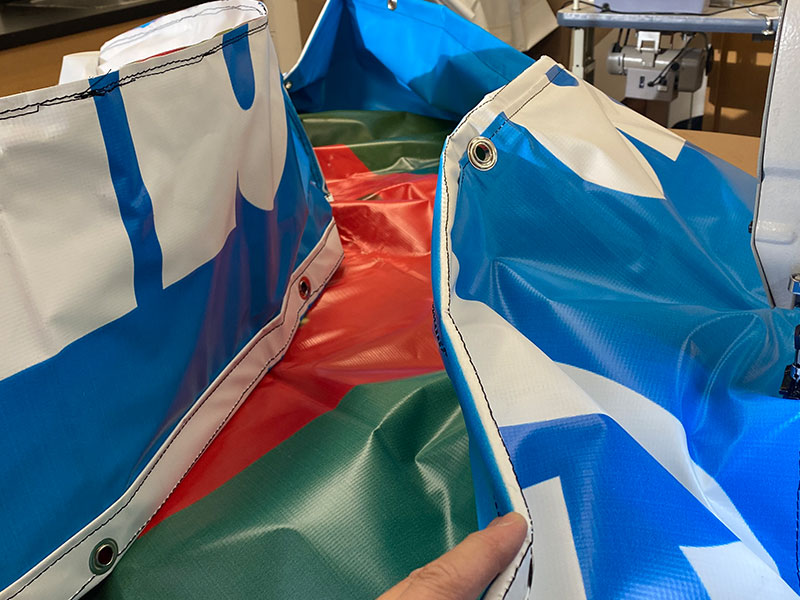
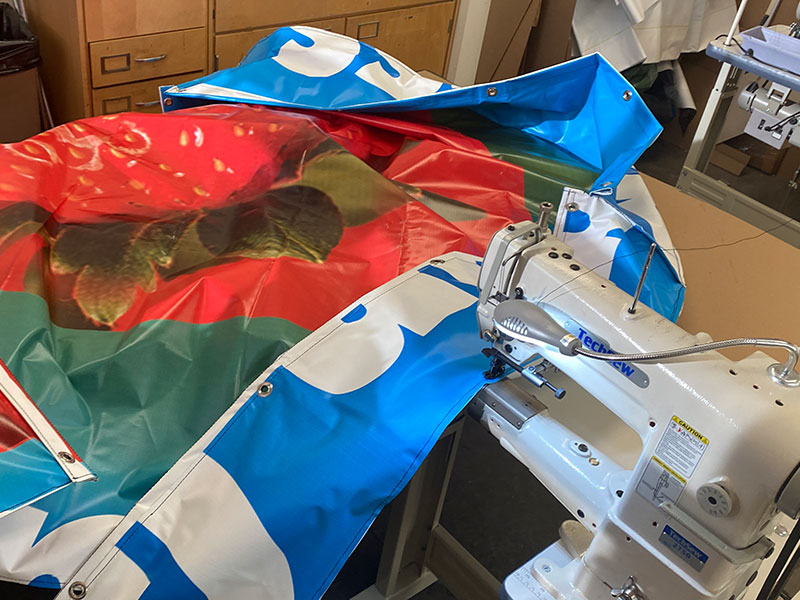
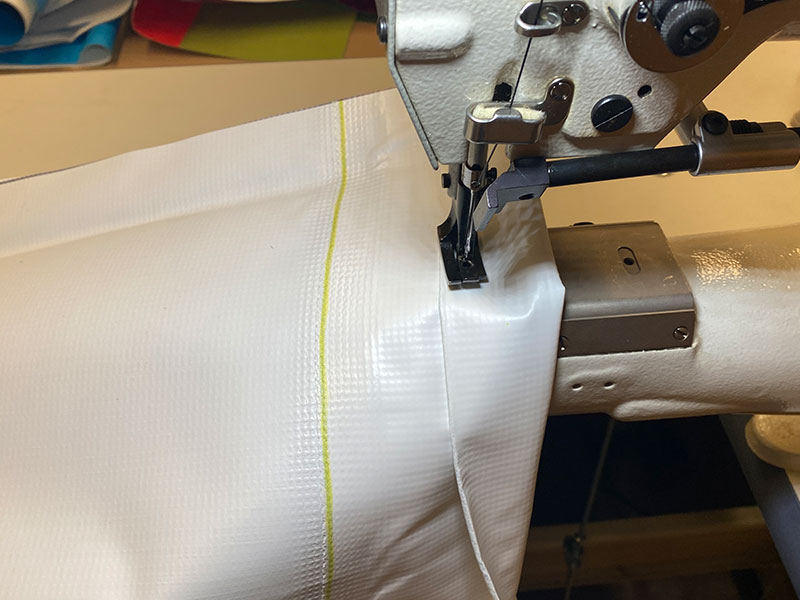
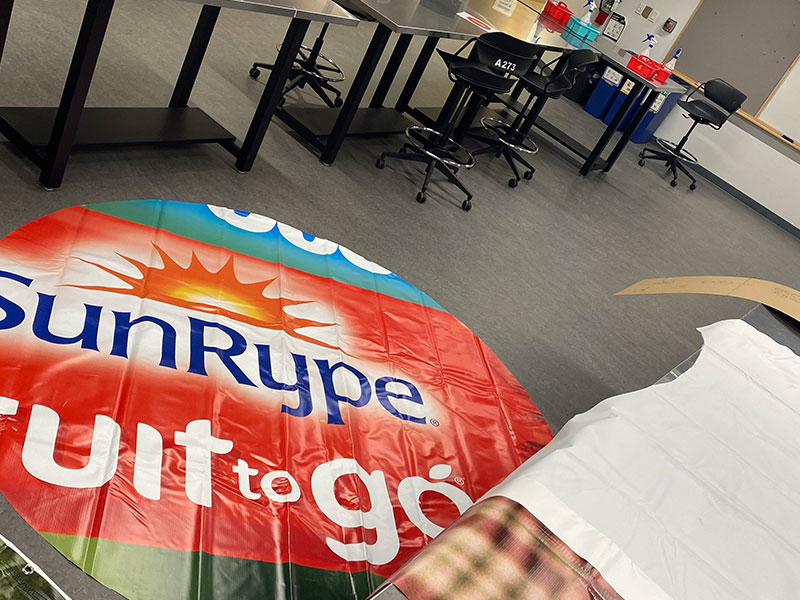
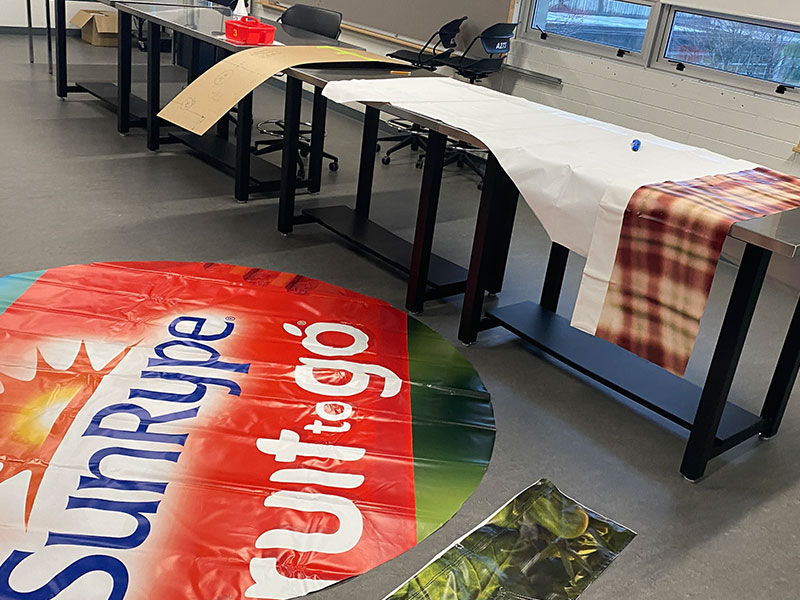
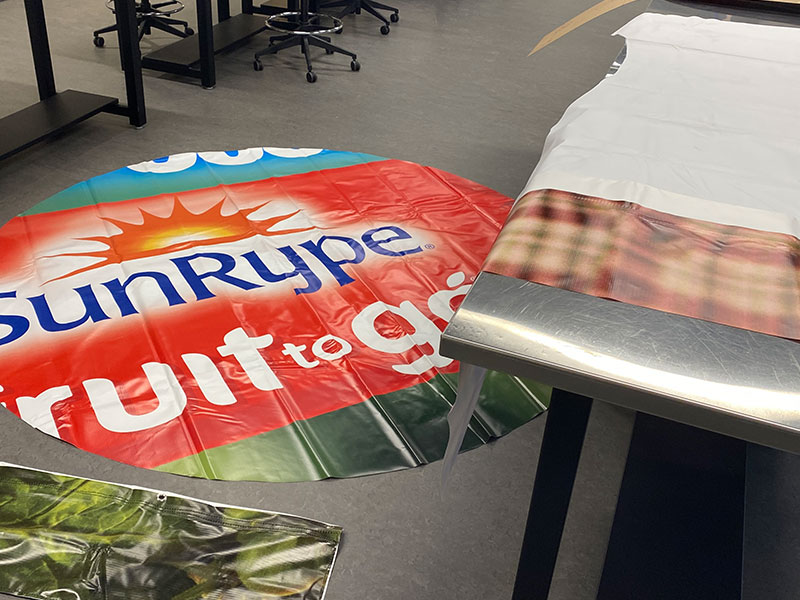
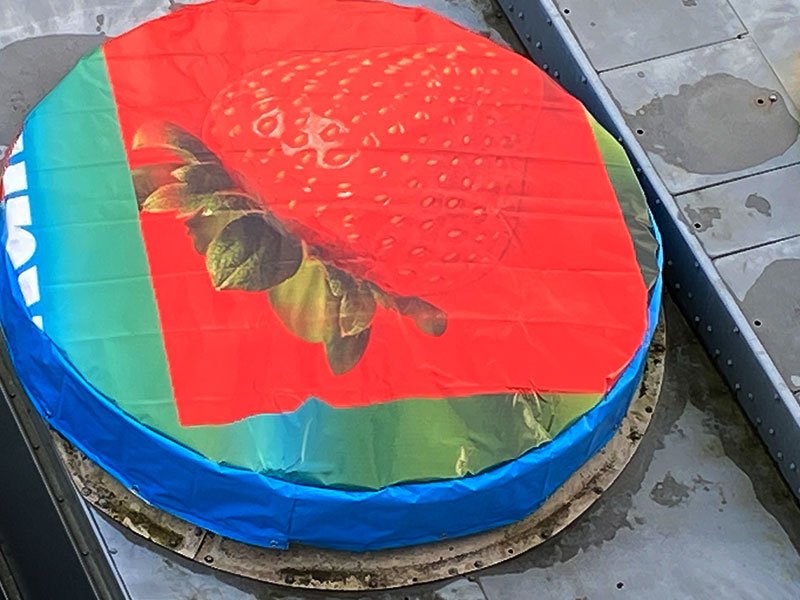
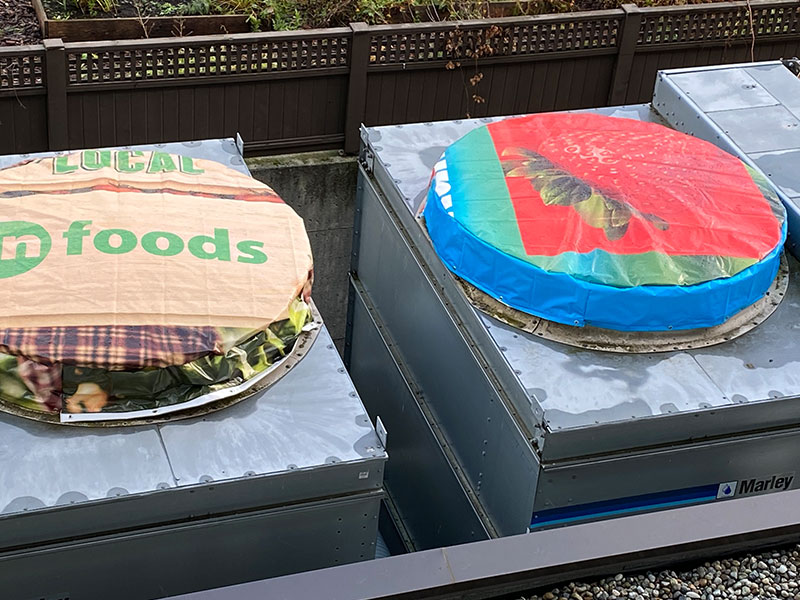
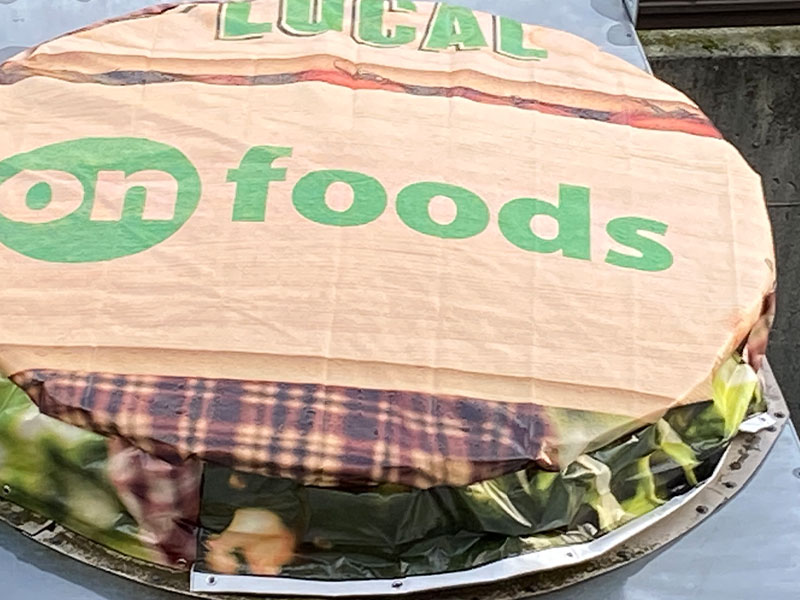
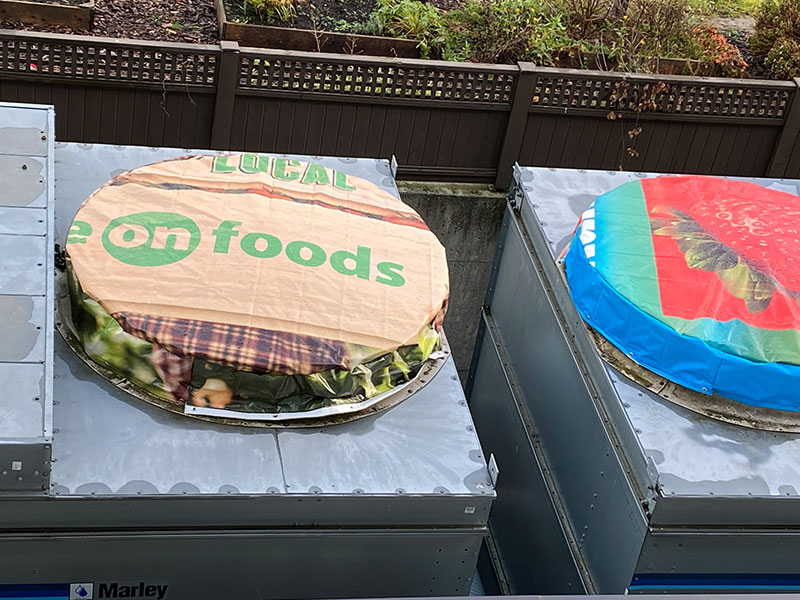
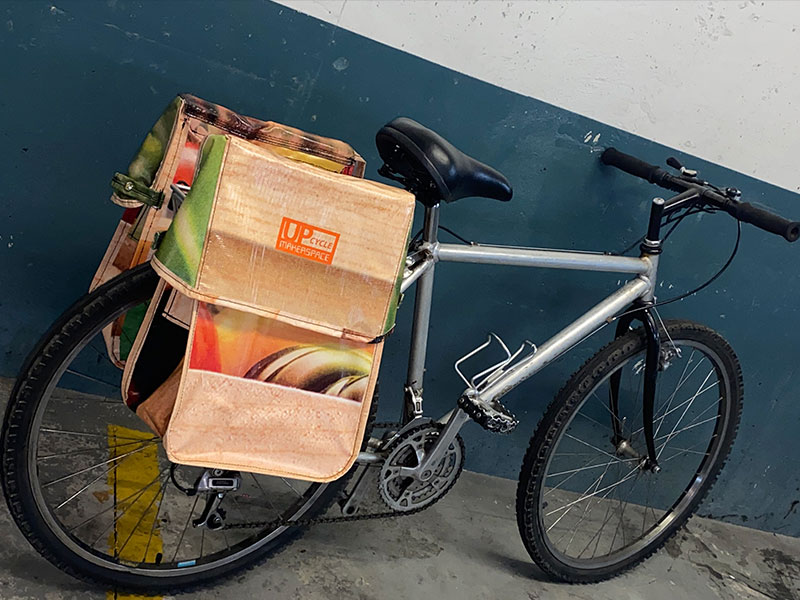
Up-Cycled Bike Panniers Made At Makerspace For The SOS Auction
Over the last few years I have been designing useful objects using giant billboard banner vinyl I have been given to from Jim Pattison signs.
They throw out 90% of the vinyl, so it is a great material to upcycle. Makerspace recently donated a pair of bike bag Panniers for the Langara SOS Auction.
Using MEC bike hardware, I designed what I thought would be a functional and useful panniers.
The bags are a great success and now the patterns and an endless supply of vinyl are available at the Makerspace. Any staff, student and faculty of Langara can make a set of bags for themselves.There will be a video and how-to manual for the bags in the new year. When makerspace opens to staff and students again, you will be able to use our industrial sewing machines to make your bags. And I will be there to help.
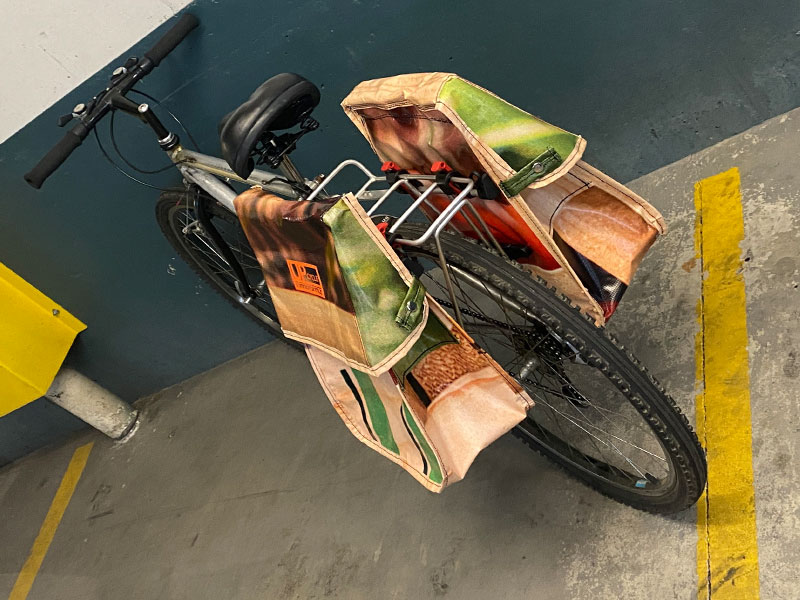
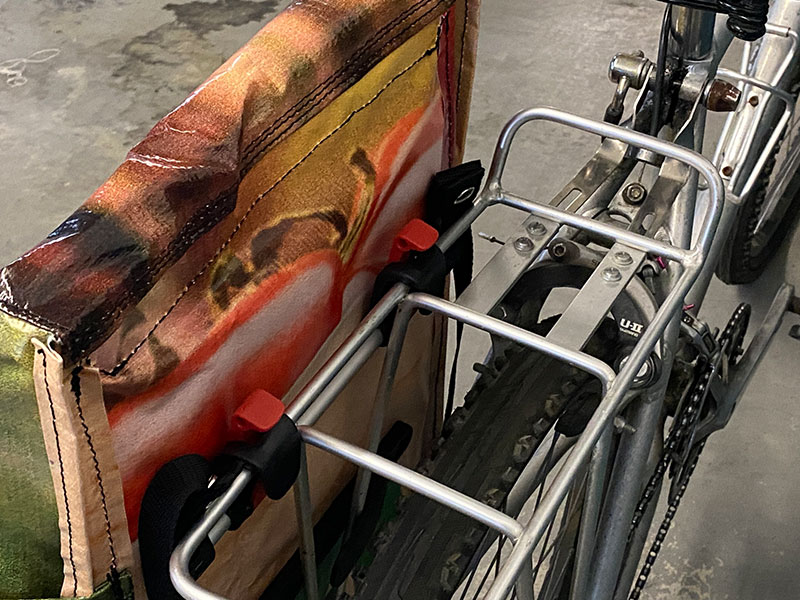
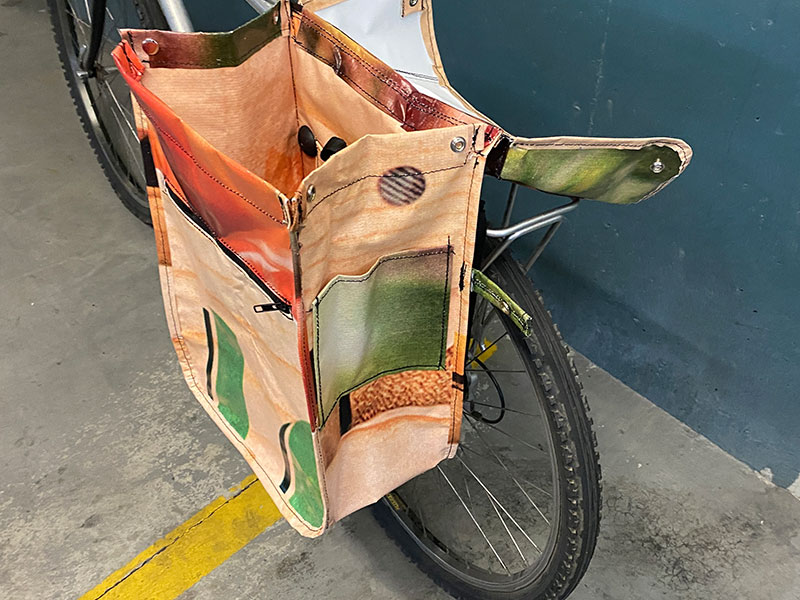
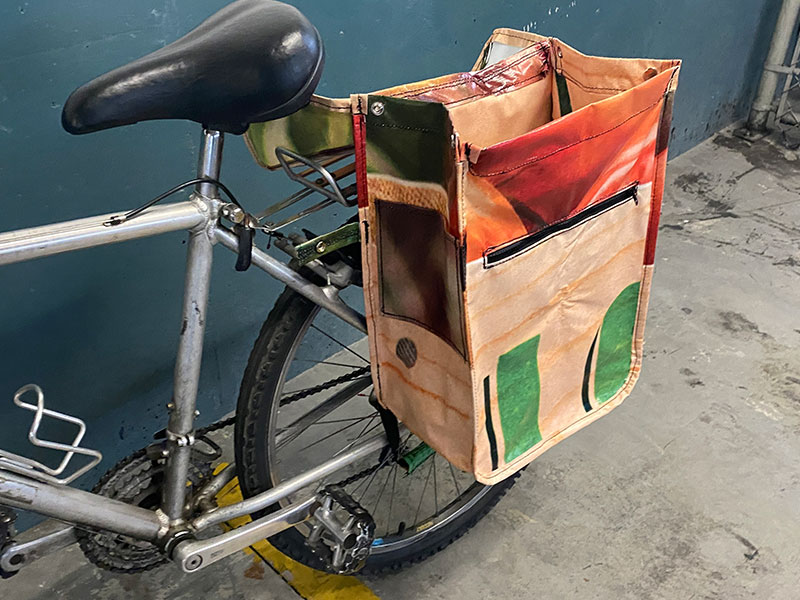
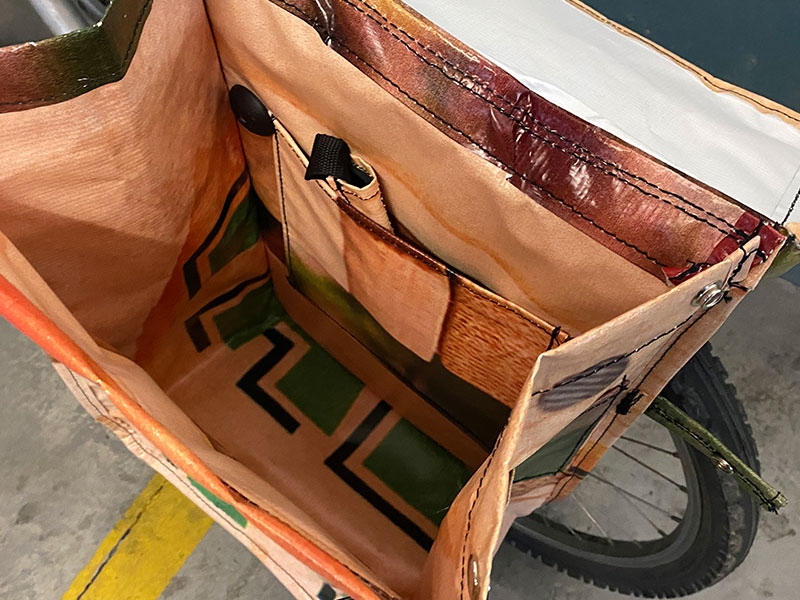
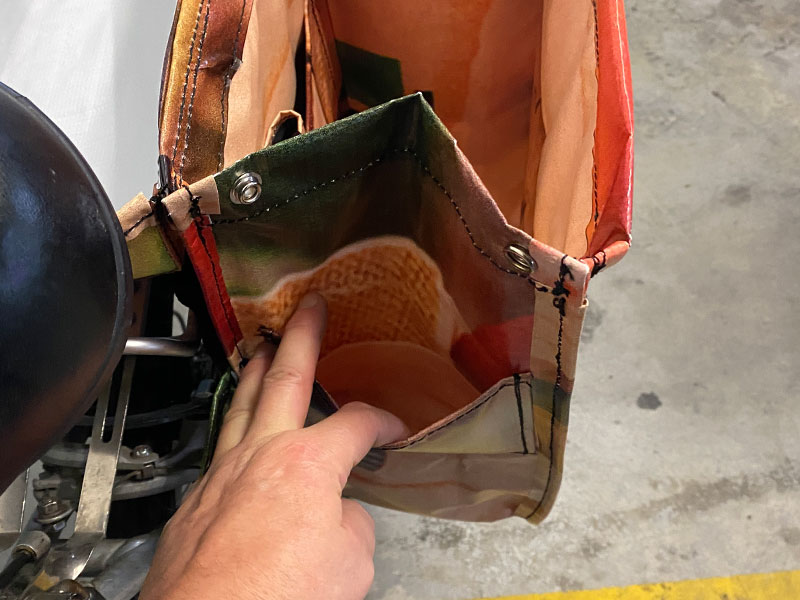
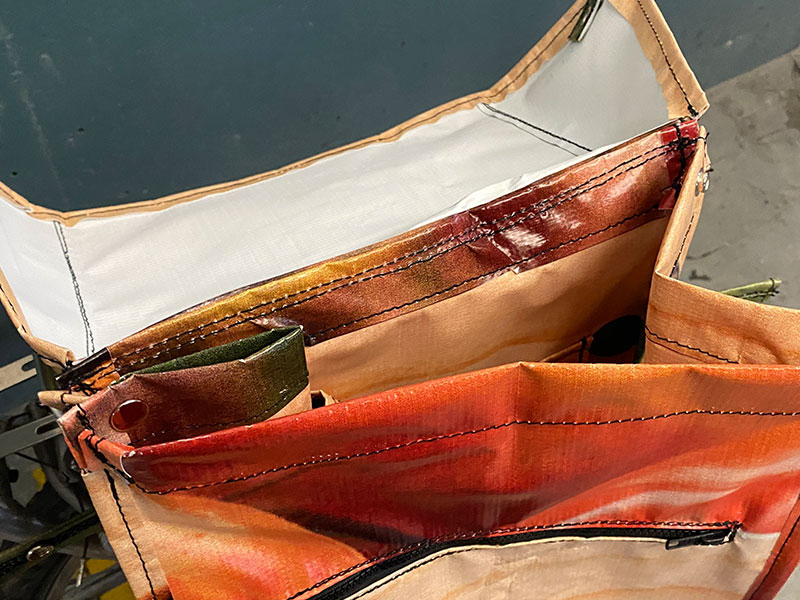
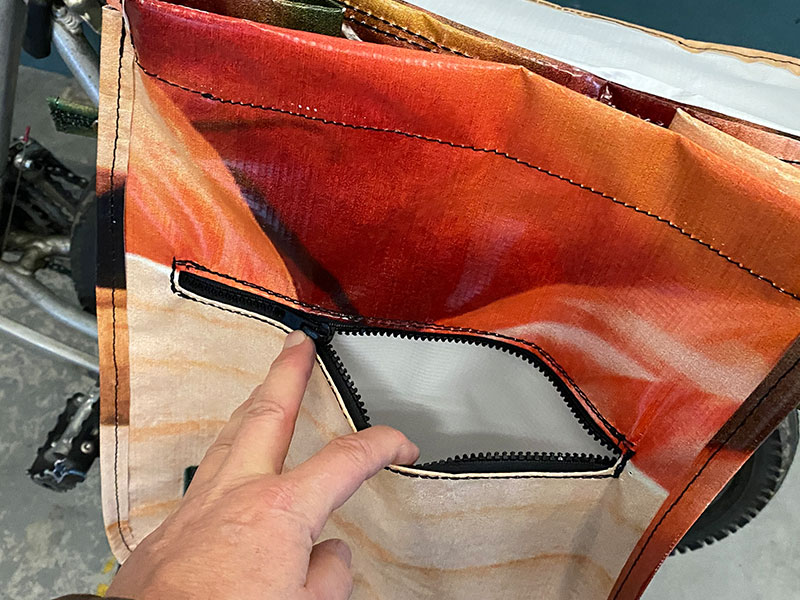
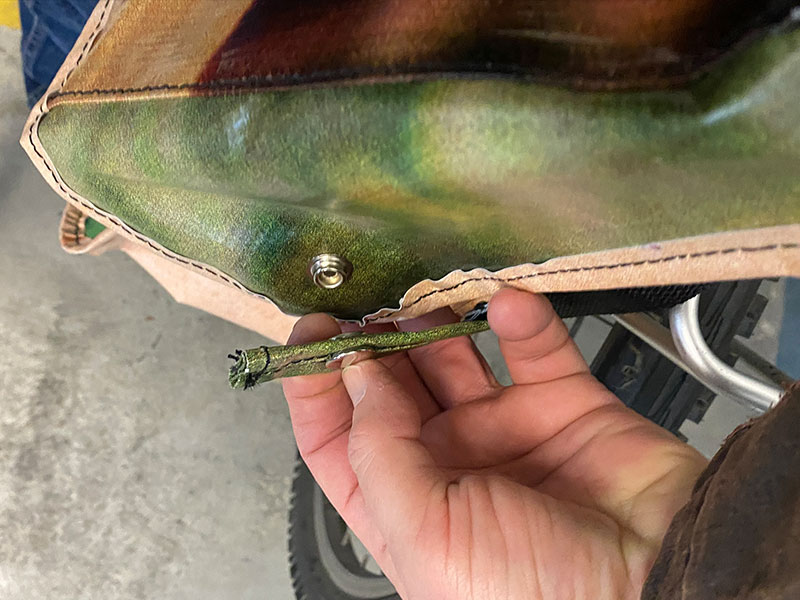
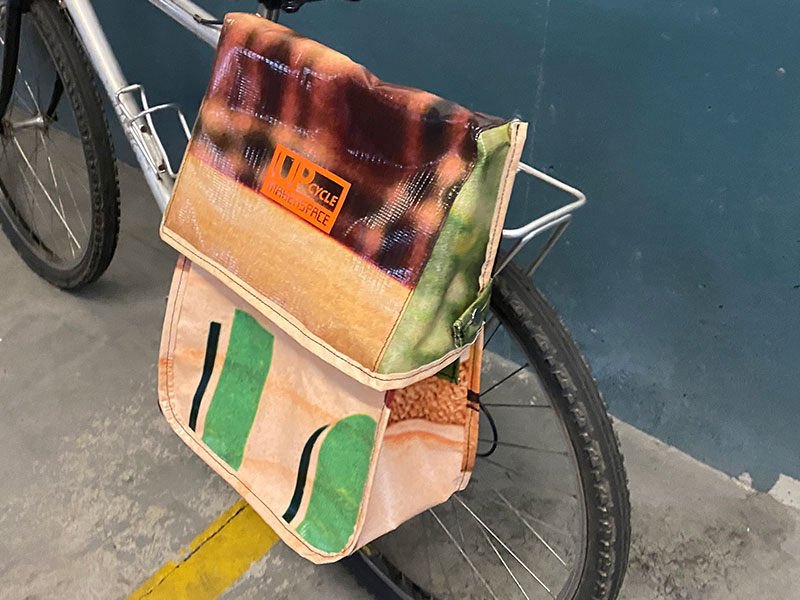
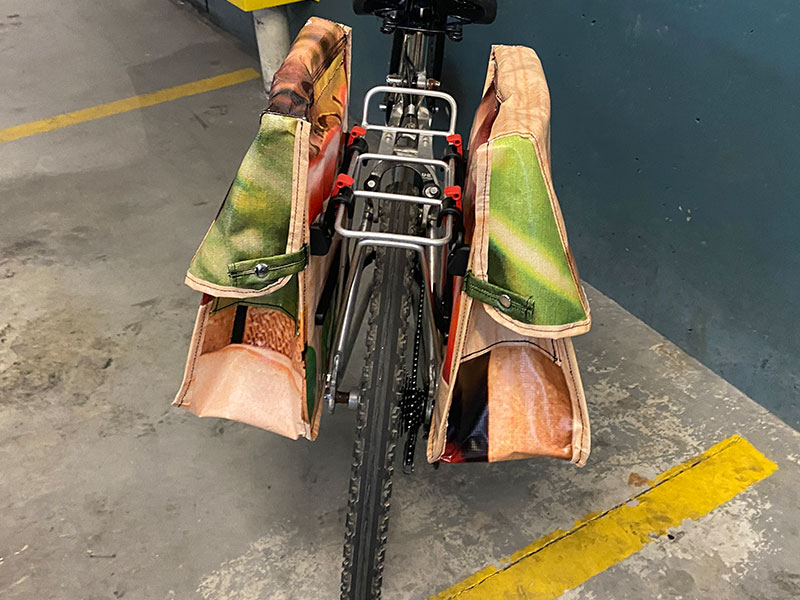
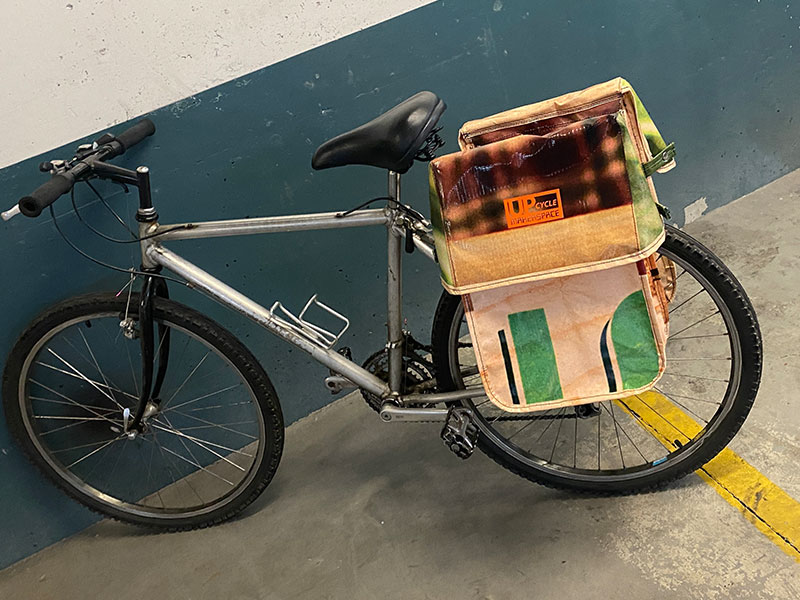
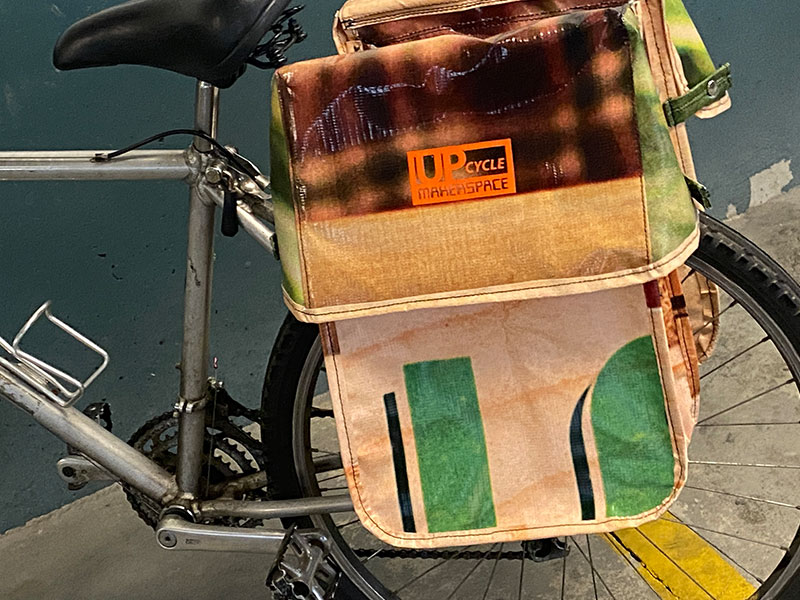
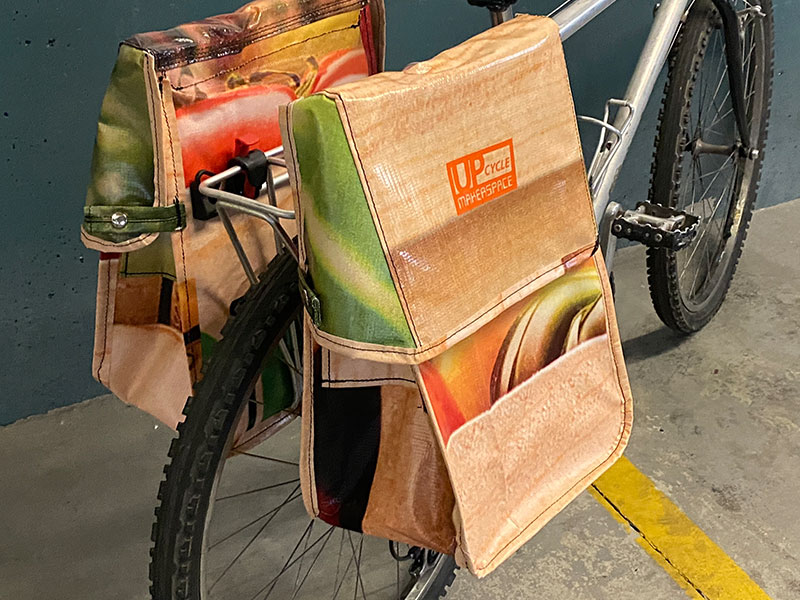

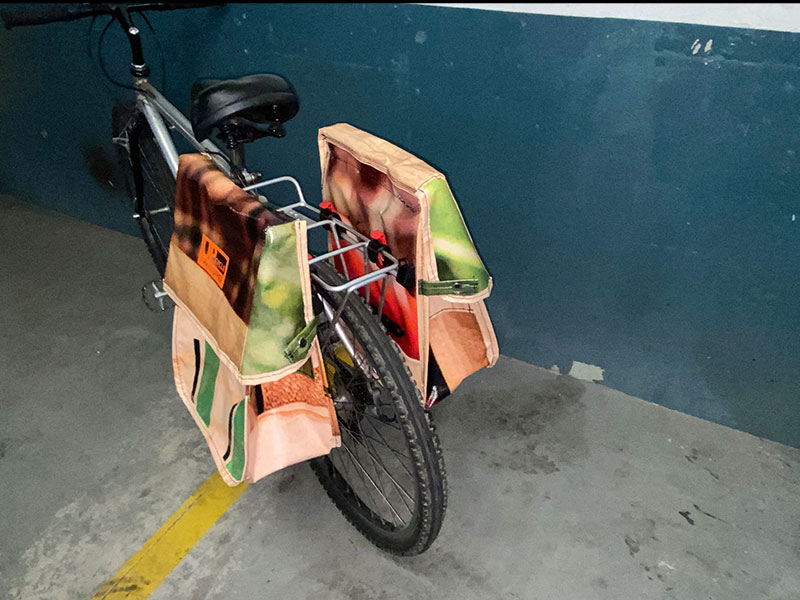
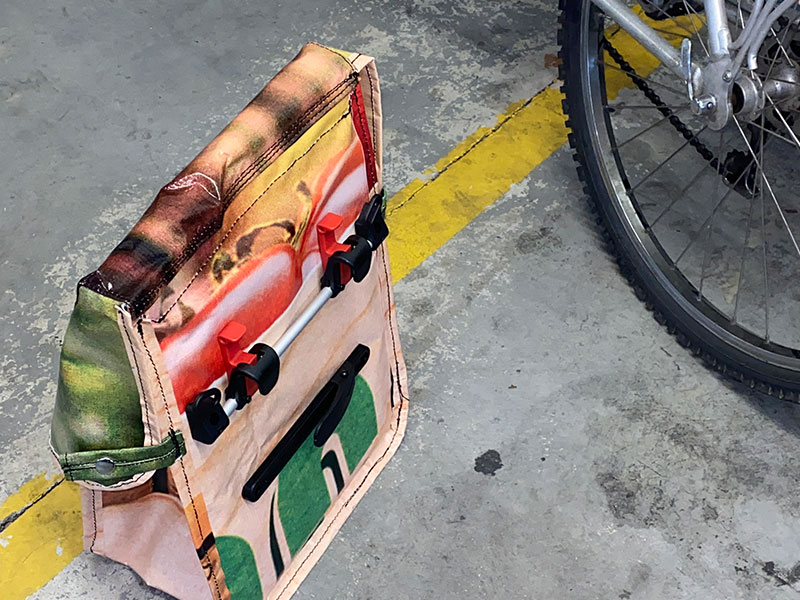
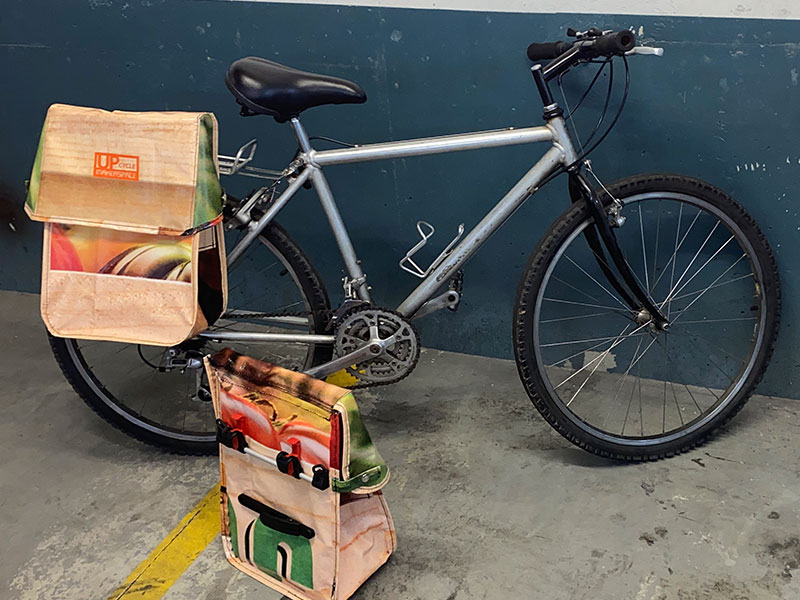

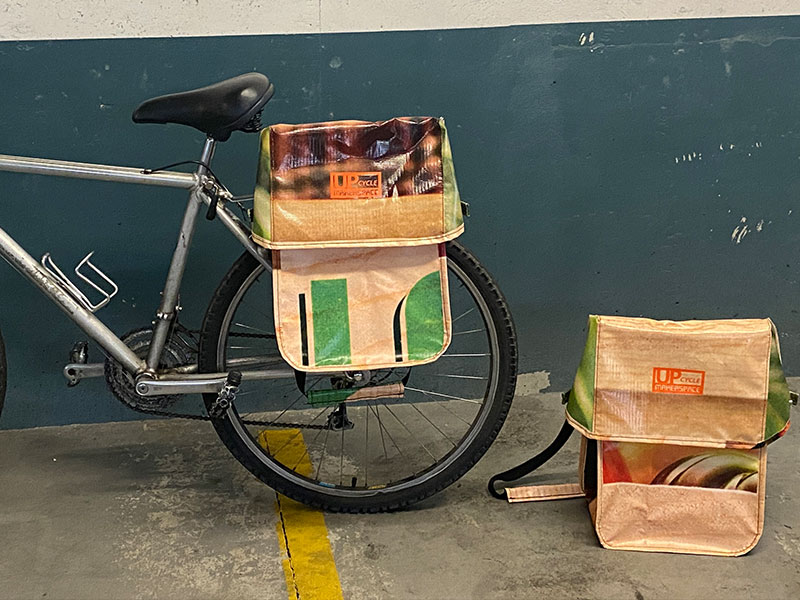
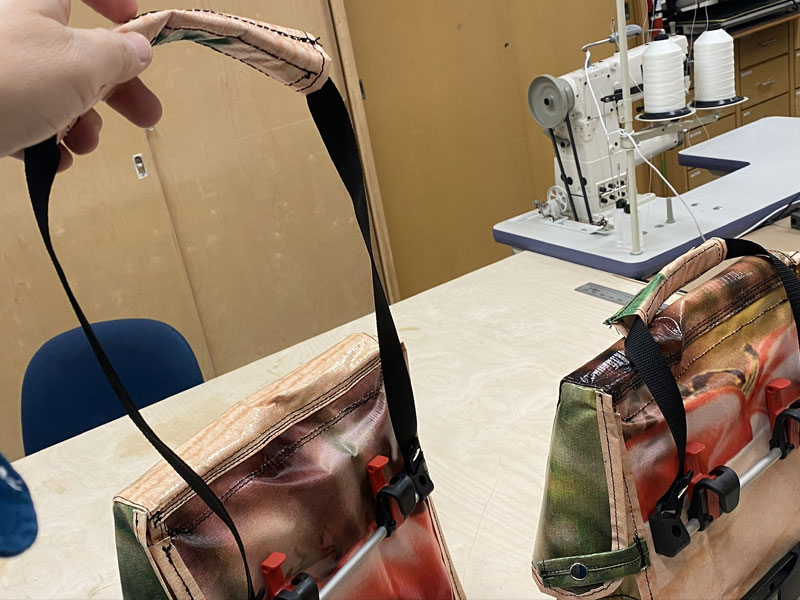
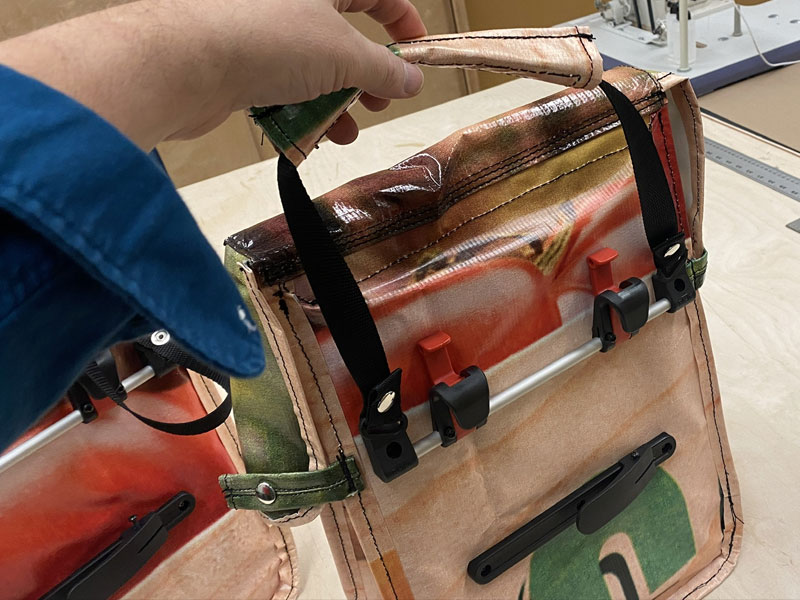
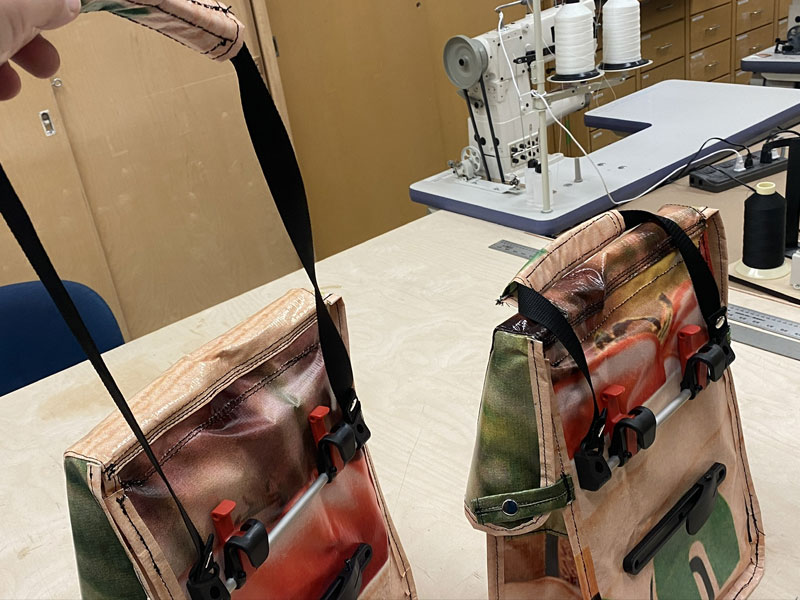
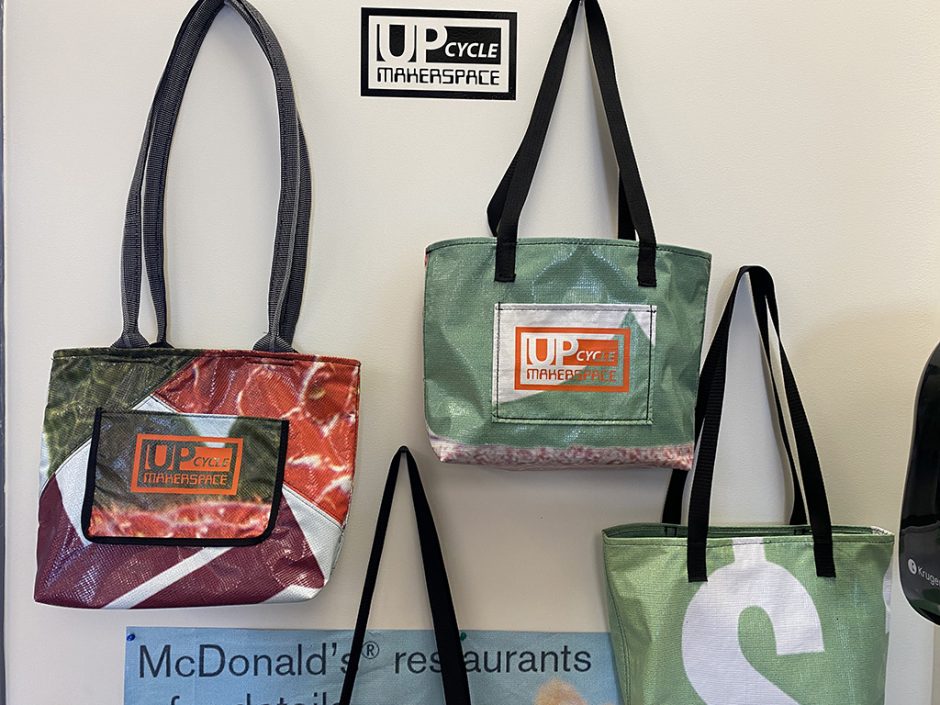
Up-Cycle Bags
We have an unlimited supply of used reinforced vinyl, that was once giant billboard ads. The material is usually disposed of or given to farmers to cover their crops.
We are using the vinyl to create all sorts of bags, bike bags, wallets and lunch bags.
We offer Makerspace Workshops (when the campus reopens) and now Makerspace Online Workshops* to teach you how to make our designs and create your own designs.
For more info contact Don at dgillard@langara.ca
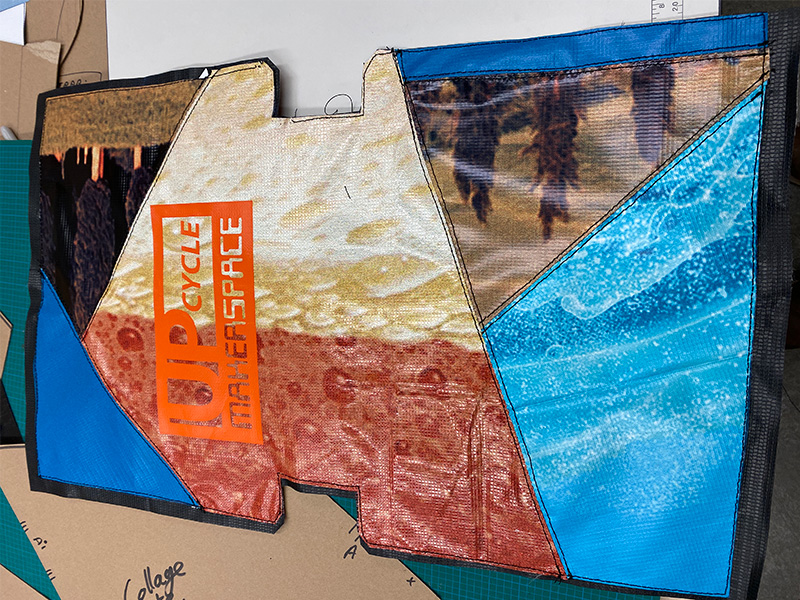
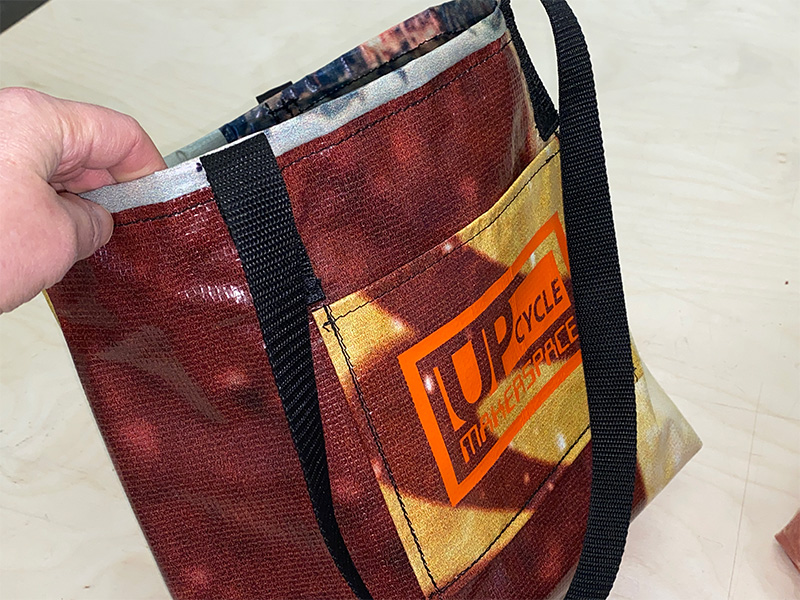
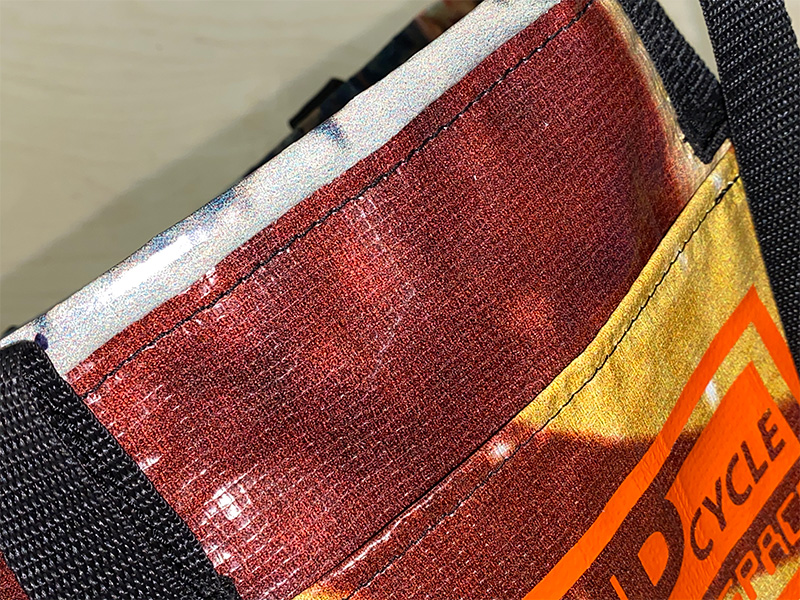
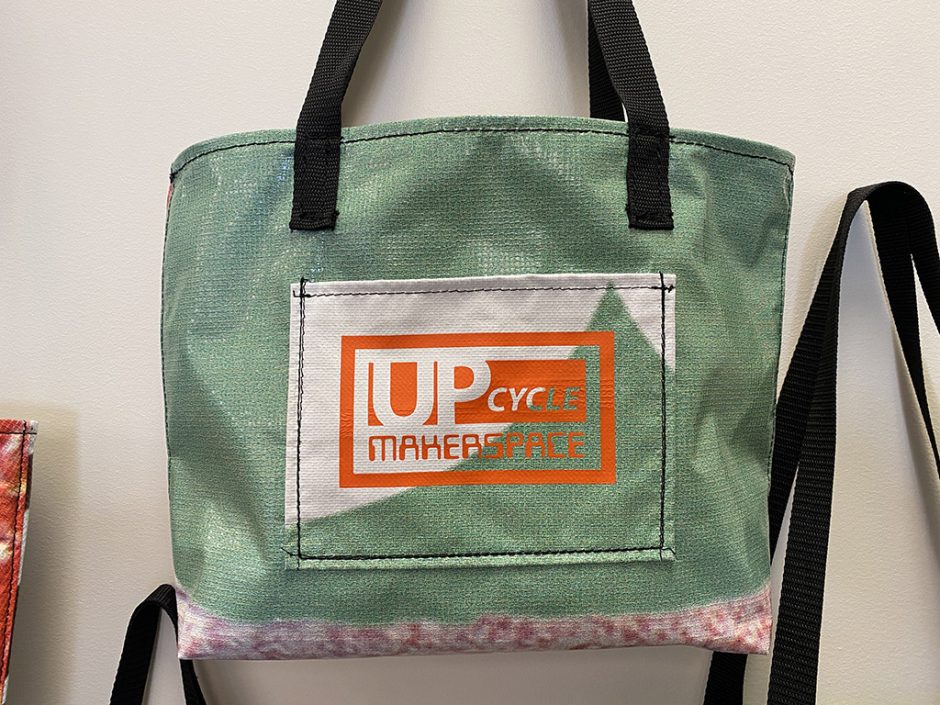
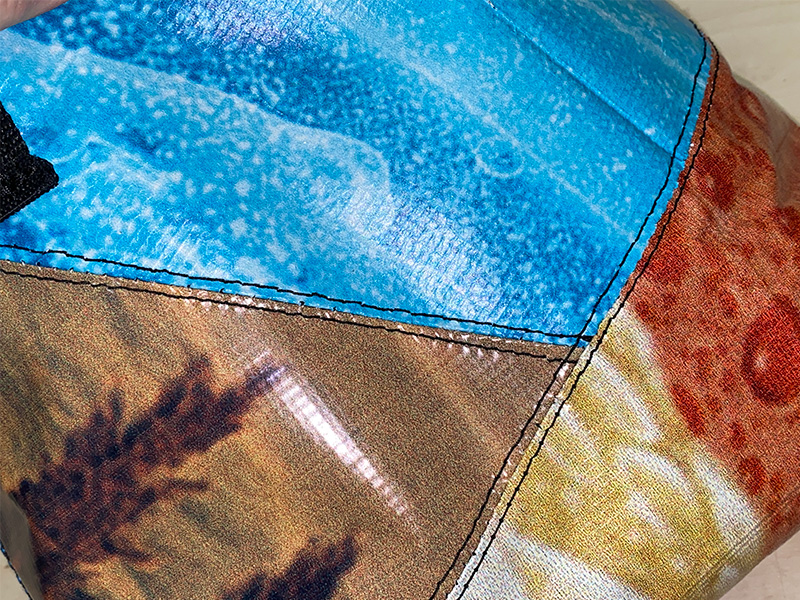
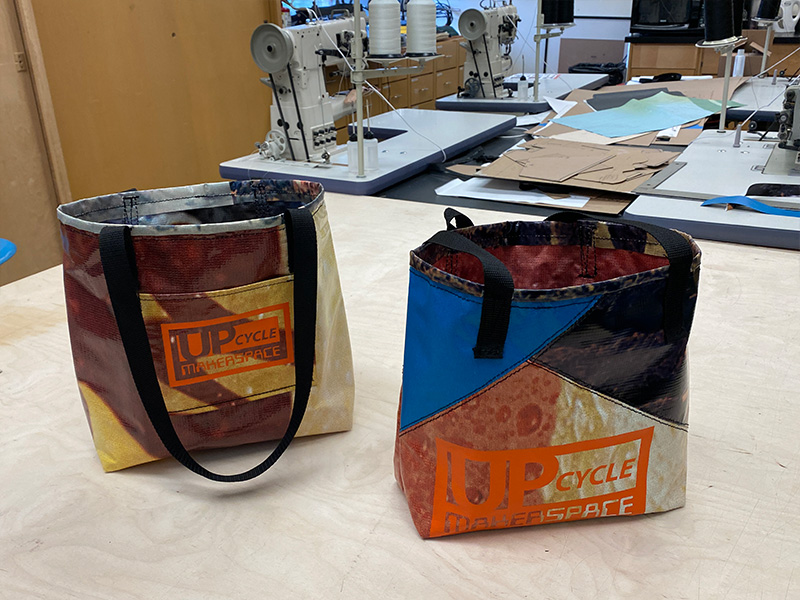
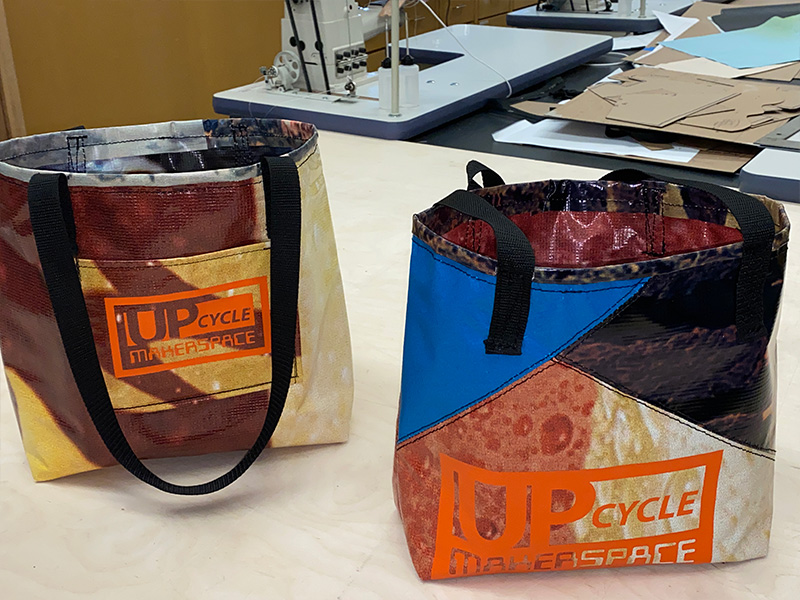
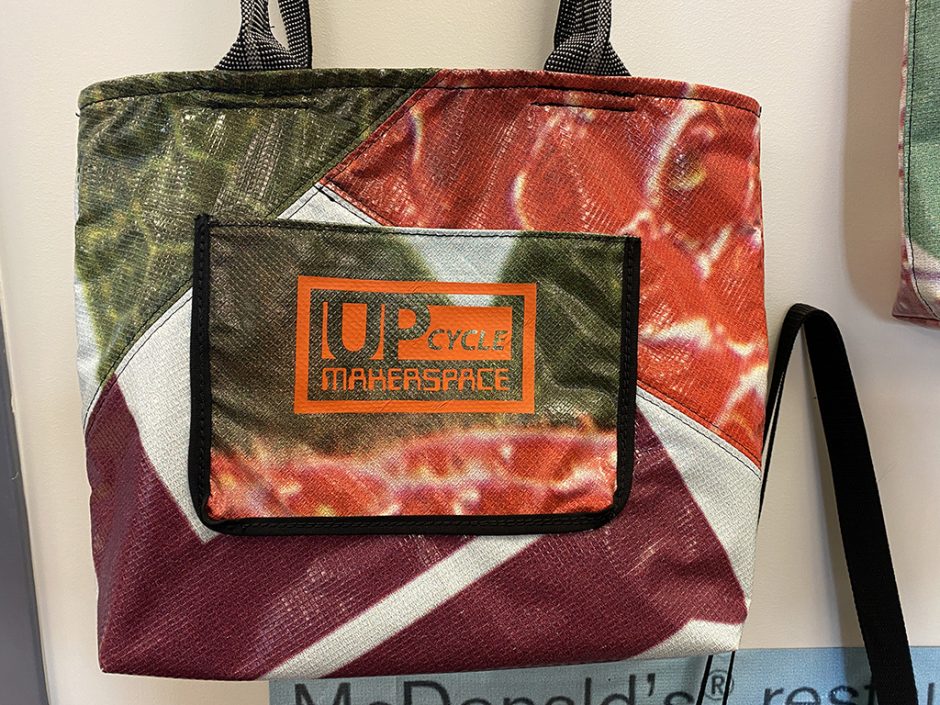
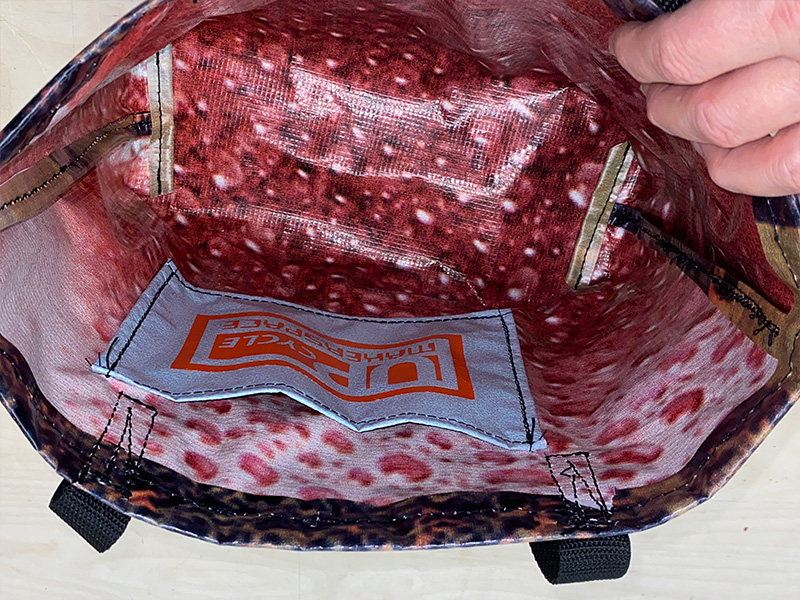
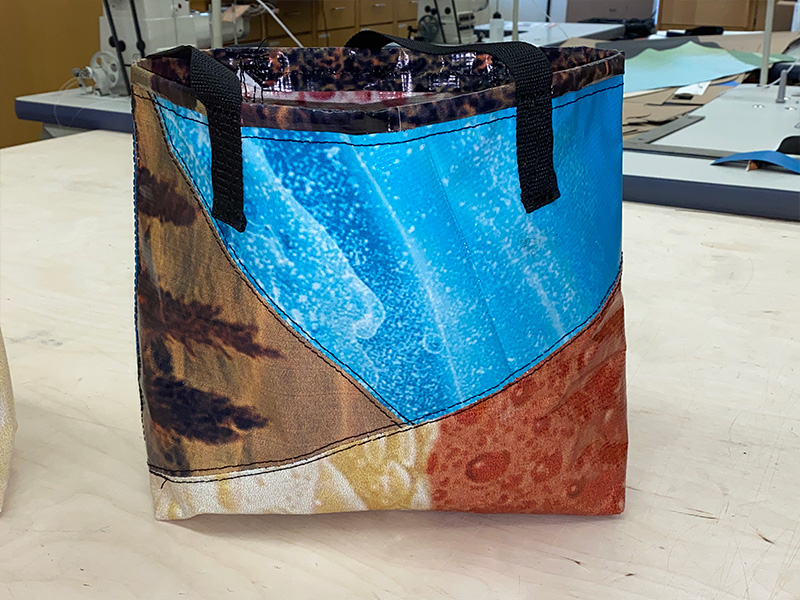
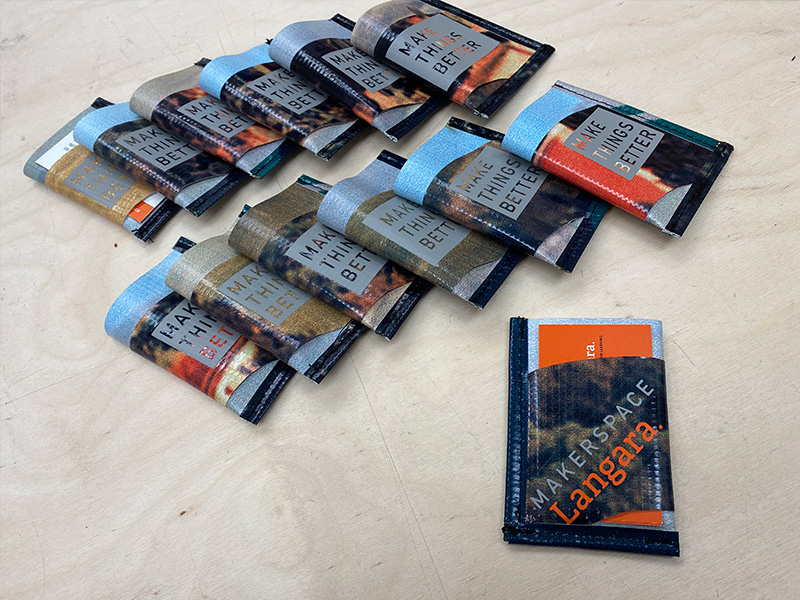

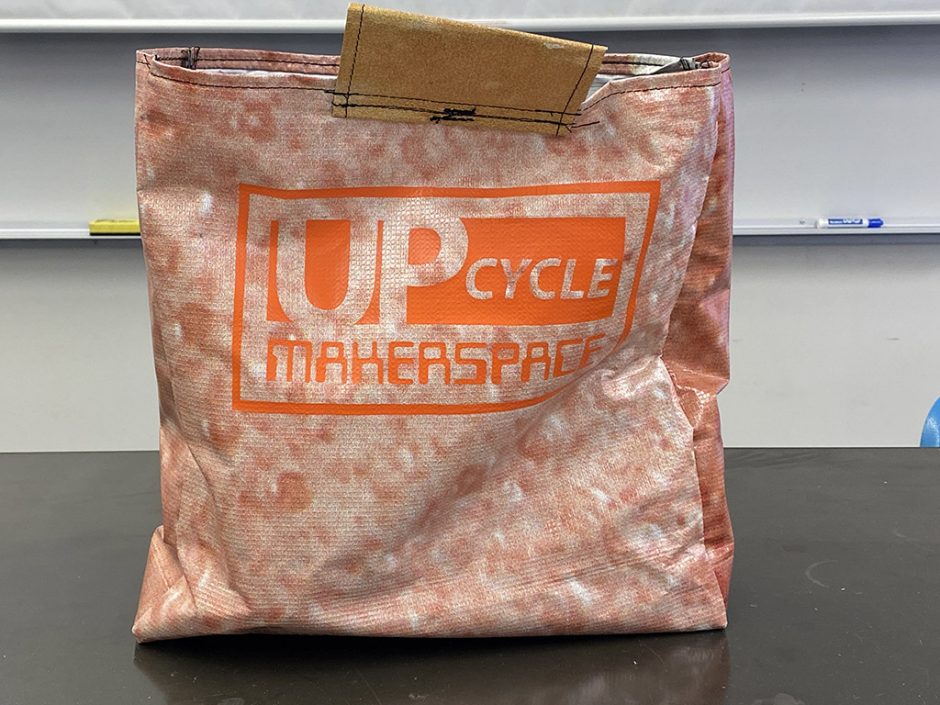
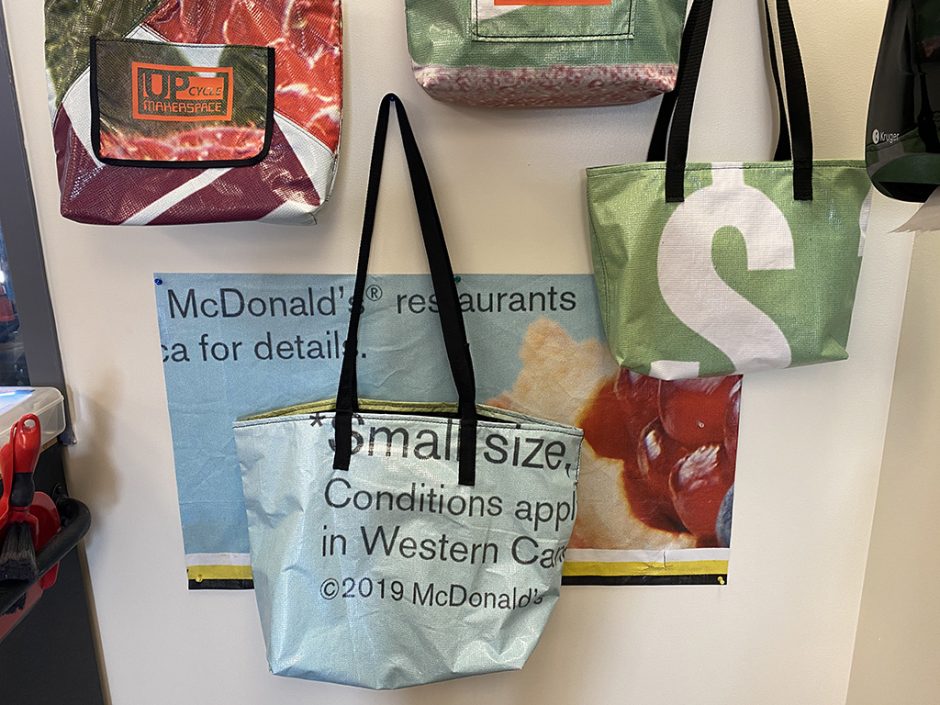
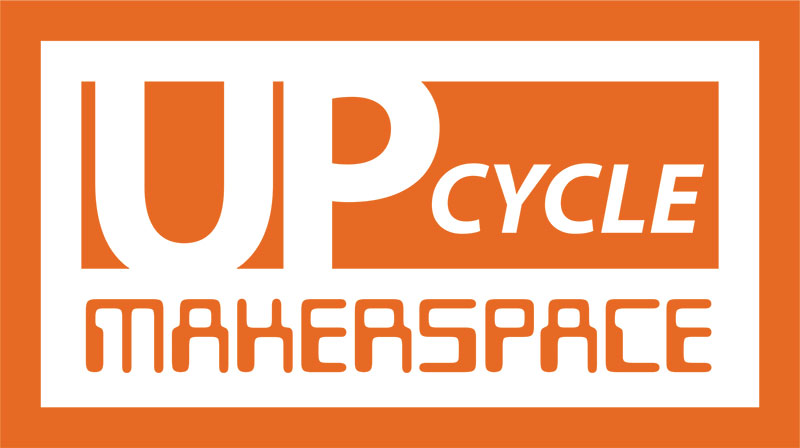

150 T-Shirts UP-Cycled
Community Day – Having Fun & Helping The Environment… 150 T-Shirts UP-Cycled
Langara’s Beyond 49 Community Day was a huge success for the Makerspace T-Shirt UP-cycle booth.
The t-shirts were purchased from Valu-Village (they gave us 50% off). Each participant choose a t-shirt (usually with something printed on it) they liked, they then were given a vinyl cut “Up Cycle Makerspace” graphic we cut with our vinyl cutter.
Their job was to “weed it”, that is removing all of the negative vinyl. They then took the shirt and laid it out onto the hot press, lined up the logo on it, and pressed it onto the shirt.
There was no charge for the shirts, but there was a strong message behind it. The fashion industry is a huge burden on the environment, so up-cycling and repurposing is a great way to help the environment. Hopefully it will reduce buying new shirts, and throwing out the old.
Environment facts of the fashion industry:
The Top 10 Polluting Industries In The World:
The Product Manufacturing (includes garment) is Rated 9th.
The Dye Industry is Rated 10th.
The transportation required to get a clothing item into the hands of the consumer is why apparel production accounts for 10 percent of worldwide carbon emissions.
Textile production produces 1.2 billion tonnes of greenhouse gas every year.
Gathering the materials for wood-based fabrics like rayon, modal and viscose contributes to deforestation.
Popular polyester fabrics washed in domestic washing machines shed plastic microfibers make their way to into drinking water and aquatic food chains (including in fish and shellfish eaten by humans).
Cotton, another eminently popular material, is a pesticide and water-intensive crop; the amount of water required to make one cotton t-shirt is the same as one person drinks in two-and-a-half years.
So Up-Cycle . RePurpose . ReUse!
